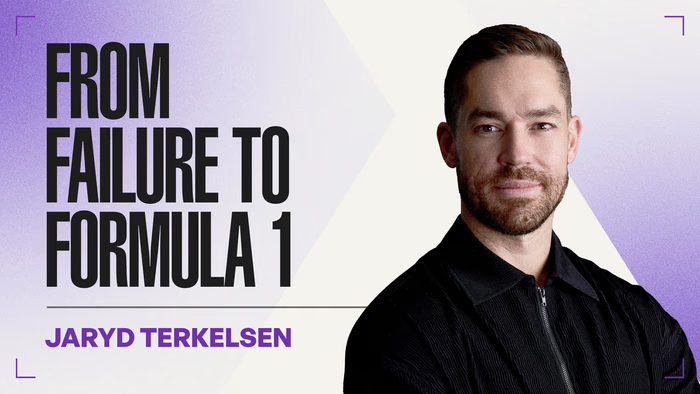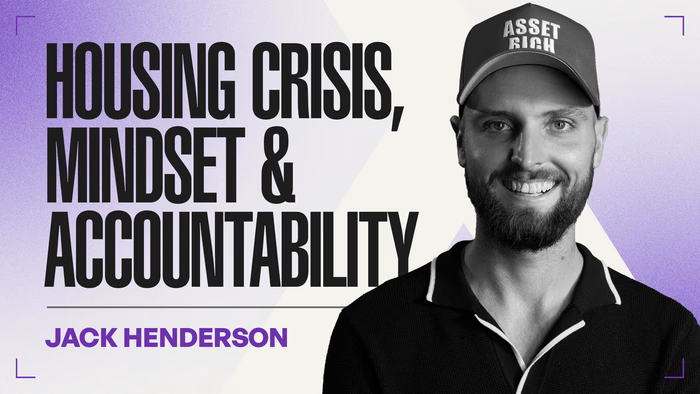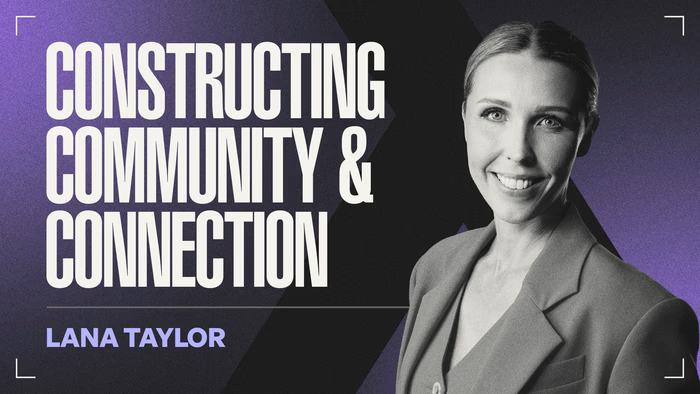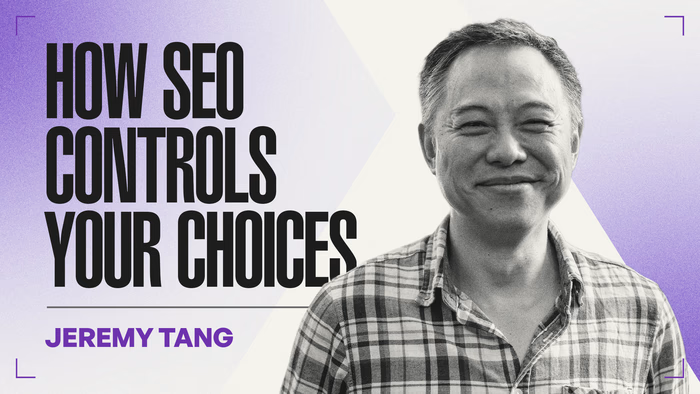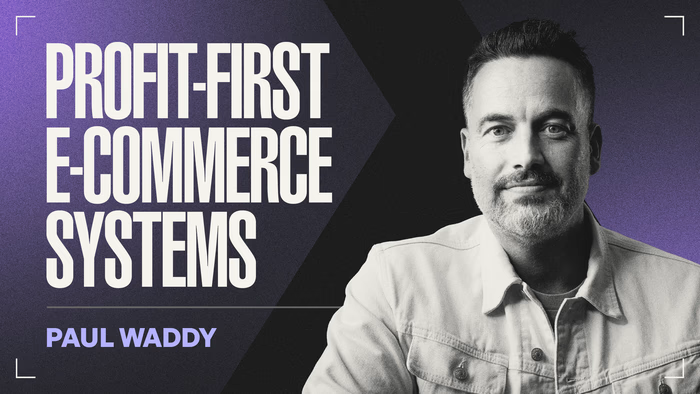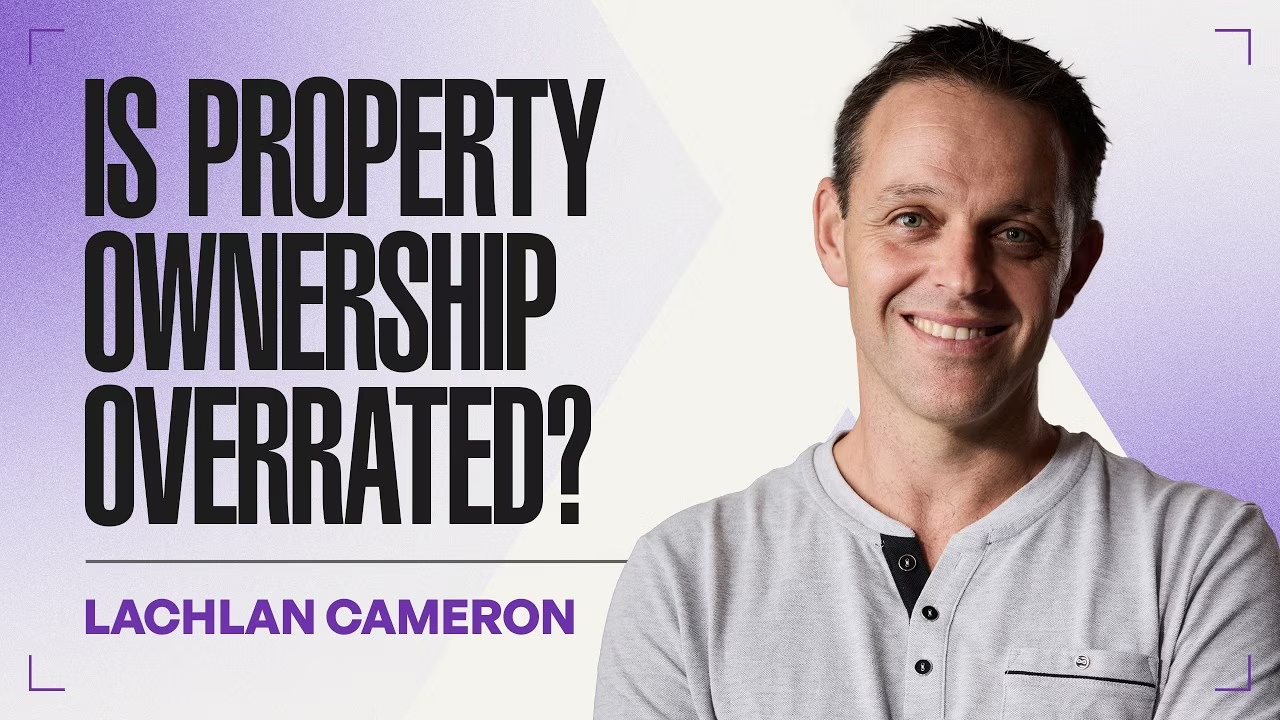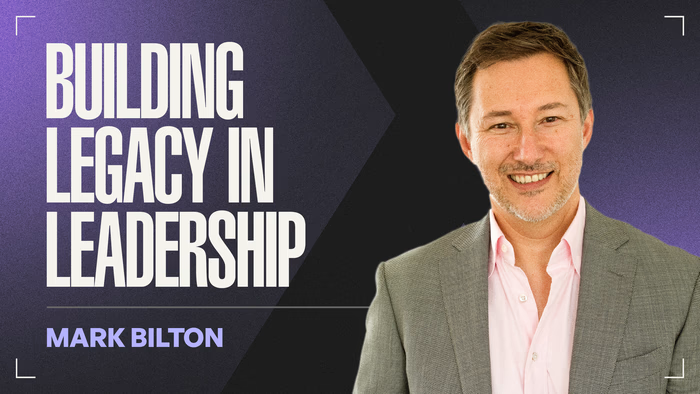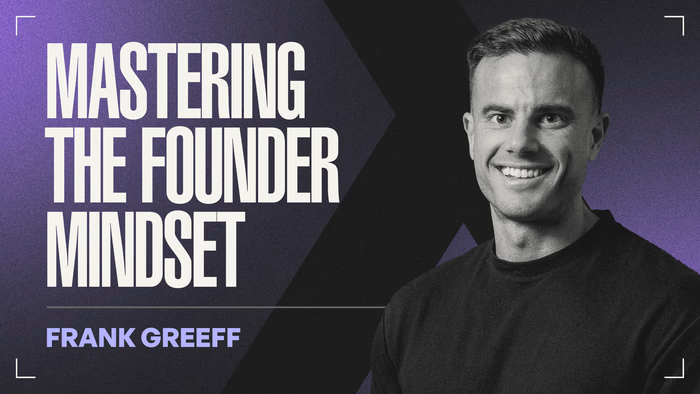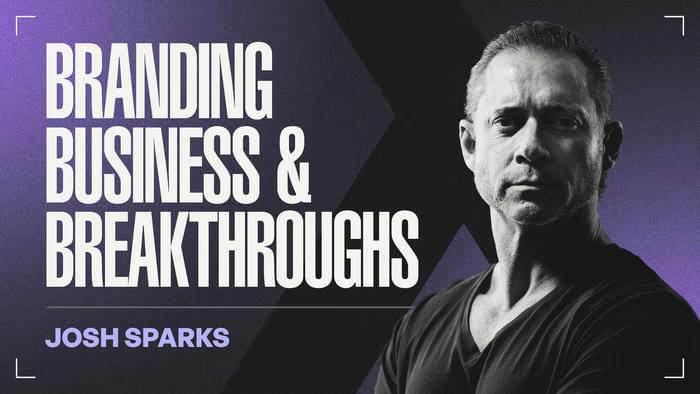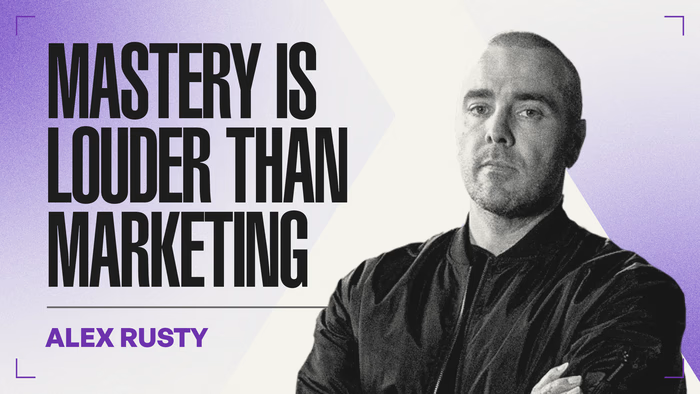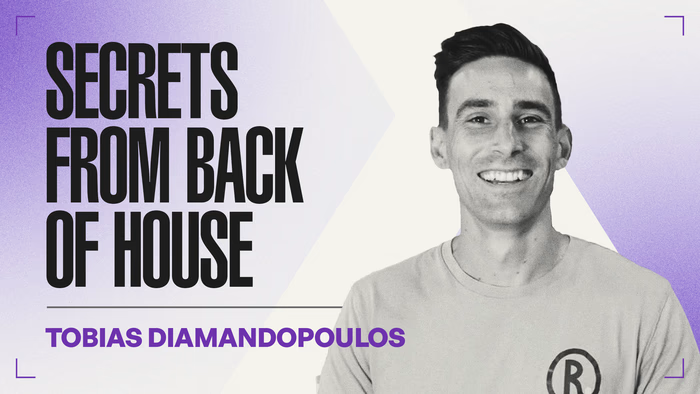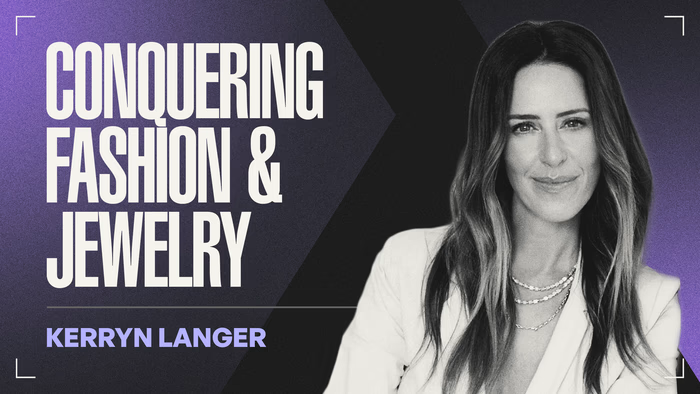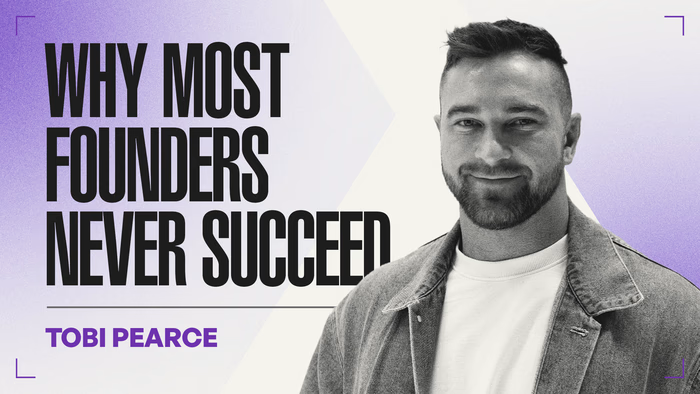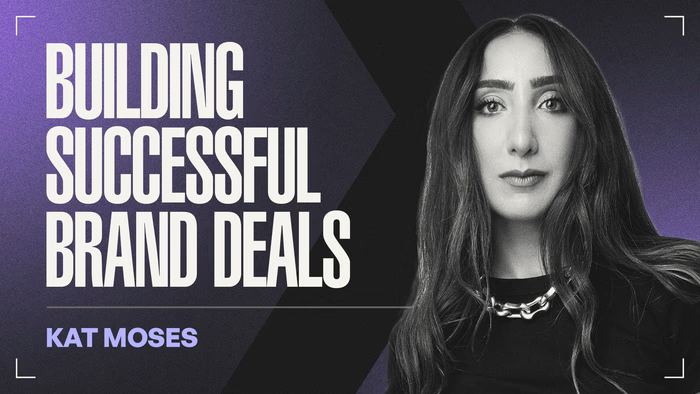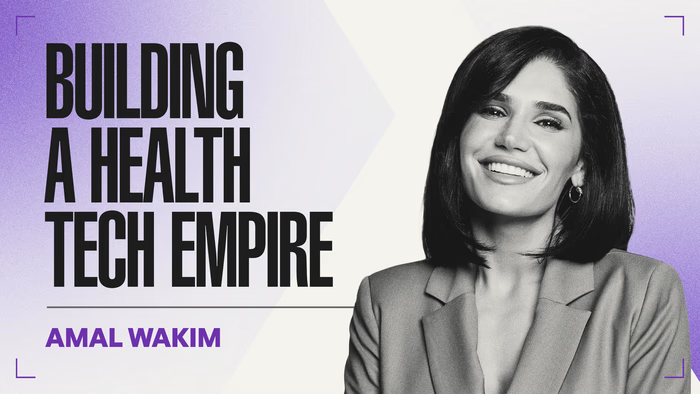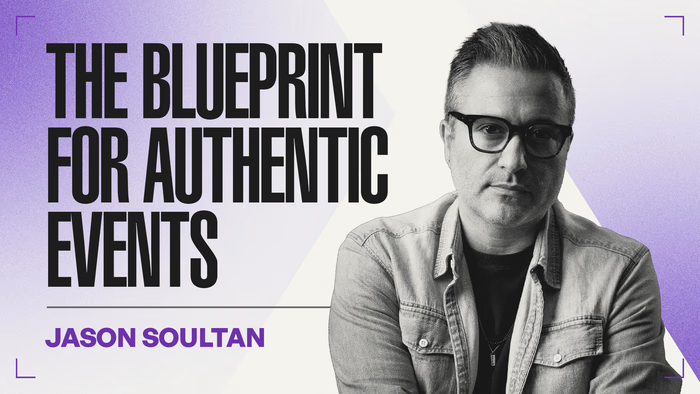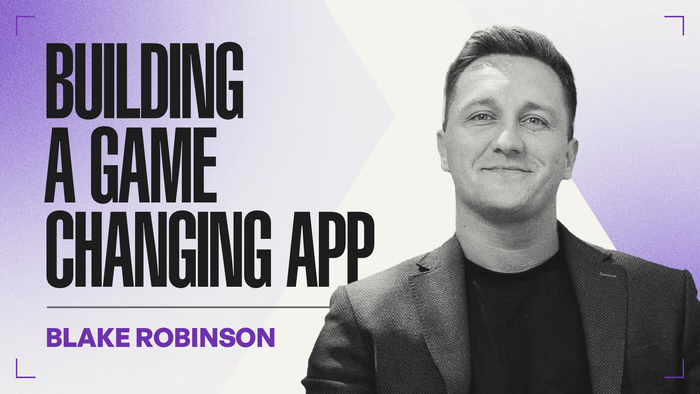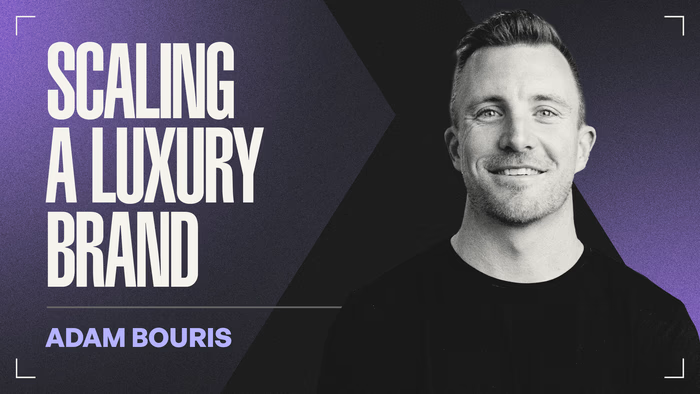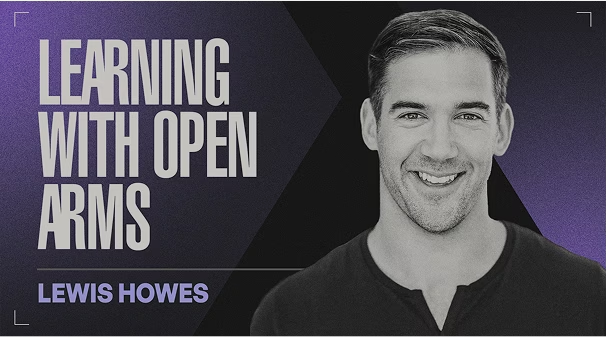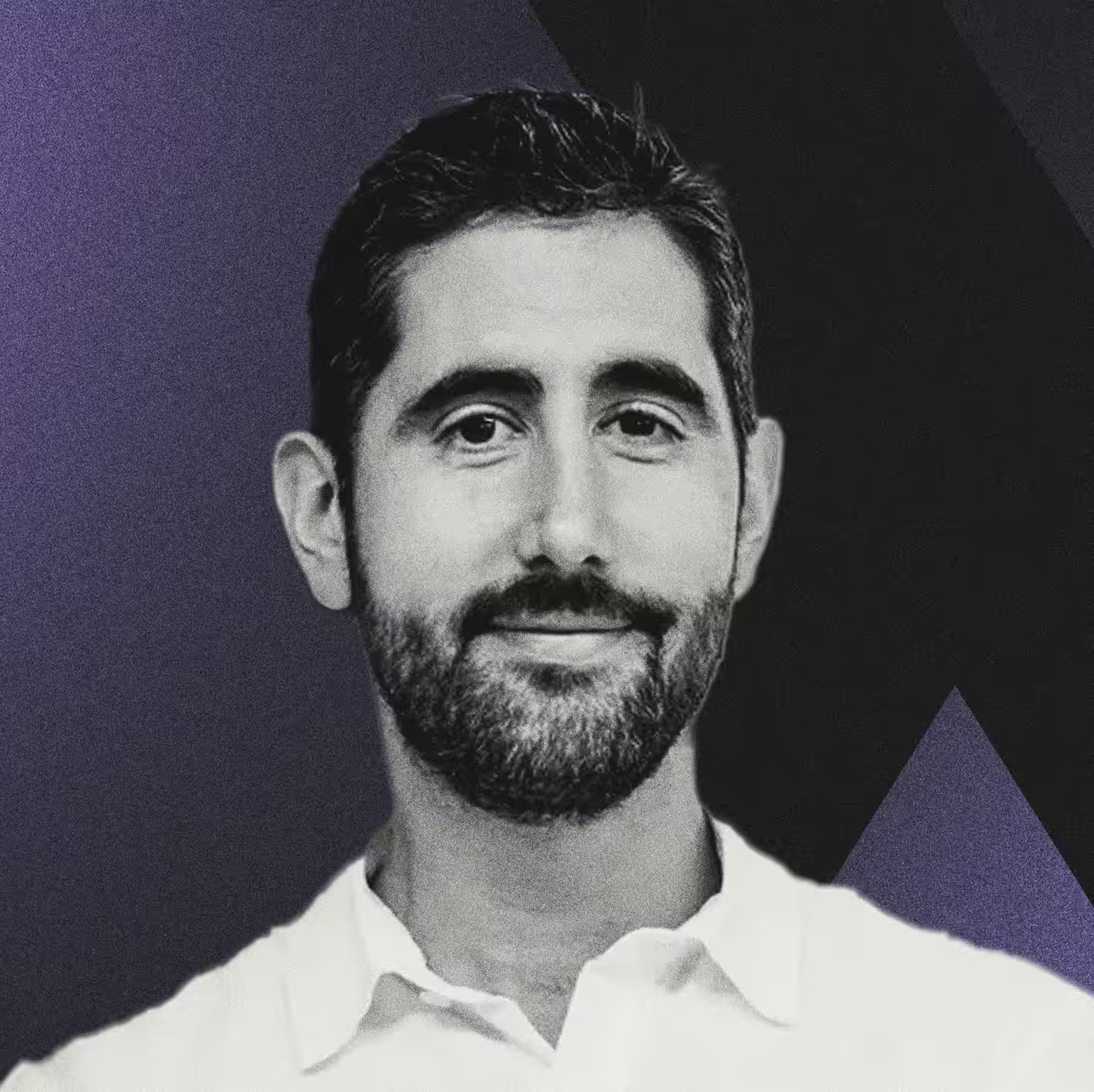


TLDR
Summary
Ben Lipschitz, co-founder of FoodByUs, Australia's largest online wholesale food marketplace, shares his experience in scaling businesses, emphasizing the difficulty of pivoting a business due to the emotional and operational commitment required. FoodByUs originated as a homemade food network but pivoted to become a two-sided B2B marketplace after data showed consistent repeat purchases, higher volume, and higher frequency from restaurants and cafes.
Lipschitz stresses that early success requires being deeply customer-centric and humble enough to admit ignorance. For FoodByUs, this meant spending time in restaurant kitchens to understand archaic ordering methods (like one-way voicemails) and building a digital solution that addresses these specific pain points. The company's growth strategy focuses on hyper-niche traction first, then smart expansion, and they scale by combining relentless face-to-face sales with strong supplier partnerships. His core advice for founders is to embrace the non-linear journey of business, learn from mistakes (like the "lockbox disaster"), and keep the focus on finding the first handful of "raving fans" rather than chasing macro scale.
Highlights
- The Hardest Stage: Of founding, pivoting, and selling a business, Lipschitz finds pivoting a business to be the most difficult, as it requires the founder to emotionally and logically commit to a completely different direction and bring the team and investors along.
- Data-Driven Pivot: FoodByUs's pivot was driven by early data showing that repeat purchases, higher average order value, and higher frequency were coming from restaurants and cafes, not individual consumers, indicating a stronger market fit in wholesale B2B.
- Customer-Centricity: Being customer-centric means adopting a posture of humility and education. The FoodByUs team constantly shadows sales reps to observe the "back of house" environment, ensuring their software (e.g., the app's offline functionality in a freezer) solves actual industry-specific problems, not just assumed ones.
- The Sales Approach: Unlike many tech startups, FoodByUs relies on a traditional, high-touch sales force that does door-to-door cold-calling on restaurants. Sales reps must balance hunger and persistence with the calm, patient role of a teacher and coach to help chefs overcome their fear of switching to digital procurement.
- The Lockbox Disaster: A critical bad decision was investing heavily in fancy, software-driven Bluetooth lockboxes for food drop-offs, which failed due to technical glitches and driver unwillingness. This taught the company the principle of avoiding complex "digital solutions" in favor of simple, robust, mechanical solutions when appropriate.
- Goldilocks Zone of Innovation: Successful product development requires finding a Goldilocks Zone—not too ragtag and not too fancy. An example of a successful product solution was adapting existing AI technology to automate the scanning and transcription of supplier invoices, solving a major pain point.
- Growth Stages and Focus: Early success requires a hyper-niche focus (e.g., starting with just baked goods for cafes) to achieve strong, loud feedback. Once traction is gained, expansion (e.g., adding meat and seafood) must be driven by continued customer voting with their dollars.
- Mentorship Strategy: Lipschitz maintains a diverse network of mentors, viewing it as "horses for courses." He uses different mentors for different problems—some for technical scalability, others for leadership or team motivation—and emphasizes the importance of mutual respect and timing.
- The Journey Mindset: His core mantra is that the business journey is non-linear and more about going through the process than the final destination. The most important lesson is realizing that the founder is constantly "shedding their skin," meaning they must be willing to let go of old roles (even preferred ones like selling) to serve the business's current needs.
- Recommended Reading: For founders in the zero-to-one stage, he recommends Peter Thiel's Zero to One for its hard, clear lens on originating a new concept and biographies (like Walter Isaacson's works) to gain a mindset of grinding out a non-linear path.
Transcript
00:00:00 - 00:00:55
so how it got its legs was honestly I would go out and sell I still try to do that and I think from there it kind of expanded out into you know we need a team and so on to do that that's part one of it but I also think it's the way the industry does things so when you look at any suppliers into these restaurants they've got reps I think getting a sales rep who is hungry able to cold call and like barge into the backup house and a kitchen and really be that rep which is what we need Ben welcome to the Pod really excited to
00:00:33 - 00:01:18
have you here with us and I know you just came back from Spain and Portugal and you were on your honeymoon yeah that's right yeah thank you for having me and four weeks is a long time for an entrepreneur man how did you survive yeah like it was it was the longest time I've ever taken off and I think it was pretty good I think the team did very very well I came back and everything was fine so yeah that's a relief when you come back you're like ah they can handle it I need to calm down a little bit Yeah
00:00:55 - 00:01:48
I S of walked in on Monday and I was waiting for a bunch of stuff that had kind of you know maybe not a picked up an email or slack or whatever I was looking at while I was away and you know what was hidden and everyone was fine everyone was very relaxed it was good it's a good sign man so to dive in I think you're someone that's had a lifetime of experience in businesses and you were a Founder by 24 which is pretty young to be in such a strong leadership position you've successfully pivoted
00:01:22 - 00:02:18
businesses and you've even sold businesses in the past in your experience what's harder founding a business pivoting a business or selling a business I think founding a business is probably quite easy in the sense that you've got an idea everything's Blue Sky you're very excited and really what you're thinking at that point is all the possibilities everything that could happen that's the fun part you know the grind is is the really hard part so and I I think you know selling it in a
00:01:50 - 00:02:41
certain sense you have your closure and you have you know I guess the end of that particular part of the journey so to answer your question I think pivoting of those three is is definitely the most difficult because you had that conviction you had that excitement it's wrong or you suspect it's wrong and you've got to a accept that and B emotionally commit to a completely different Direction with the resources you've got and if you've got a team you got to bring them on that Journey now
00:02:15 - 00:03:02
yep I know that I've hired you for x and we're all on that mission actually it's Y and now we're going to do y and let's go do that so I think that can be quite challenging like handling the team's expectations and you know predominantly people don't like a lot of change so at that point in time when you like how big was the team and what was like the maneuver that you had to pull off yeah so the team we had was seven at the time but then we also had investors which I
00:02:39 - 00:03:24
would include as part of that team because all of the above had to really be taken on that journey and saying I know that we were doing something and we're now going to do this completely other thing and I think a lot of it was following the data the data really spoke the truth to me and then I think the more I was able to interpret that and kind of see the direction we should head in then it was easier to bring the investors on board and easier to bring the the team on because it wasn't just
00:03:01 - 00:03:51
some yeah Fantastical idea that that it had it was actually really coming clearly through customer feedback through sales and so there were a lot of meetings a lot of kind of what about this what about that but yeah and I think for some business owners in that position if especially if it's their first experience it might be difficult to navigate that when you say data like what are some of the things that you predominantly like to look at from a Founders perspective when pivoting a company I think the number one thing is
00:03:27 - 00:04:15
customer retention or repeat purchases I think you know in our case what we had built was homemade Food Network and people could buy and sell food sort of like Airbnb but but for food and so people were posting food you know Dan's cake and some people would buy that cake but would they buy it a second third fourth time and what started happening is you know restaurants cafes these sorts of customers were coming in not only were they buying it once or twice but in higher volume sorry not only were
00:03:51 - 00:04:37
they buying it but in higher volume and and higher frequency and the more we started looking at that and said well hang on you know people are voting with their dollars here I think what was important for us in that case as well is we already had a technology platform that dealt with the concept of a seller which was D the person making the cake and then the concept of a buyer all right which was just an individual so we substituted I guess restaurants as the buyer and Wholesale Food Supplies as a
00:04:14 - 00:05:09
supplier we were able to kind of Leverage of our existing Tech that was quite a big deal as well do you find that there's internal battle in some cases where you know some Founders have an idea and they can be too headstrong on said idea and maybe an unwillingness to look at the data did you have any of that internal conflict where you're like I was really pursuing this idea and now this other thing's happening yeah like how difficult is it to I guess really shift yourself mentally and emotionally
00:04:41 - 00:05:40
and operationally in that direction I think I'm very fortunate that my two co-founders FAS quite fluid and and open I think to changing we're also all very data driven and so we were able to kind of look at the numbers and it kind of spoke for itself there wasn't much I think emotion in the room or or kind of conviction that we all really wanted to change the world with homemade food you know it was a good idea and we kind of got investment and we was it was enough to kind of you know found the company
00:05:11 - 00:06:00
but ultimately we wanted to do something that was helpful and successful that people wanted that they were voting with their dollars to say yes I want this again and again and ultimately I guess that that kind of vision United us all so it wasn't actually difficult at anything amongst the founders but I I got myself lucky as having the co-founders because I could imagine what you're talking about happening very easily that you know the Mission Vision and reason we kind of did this is now
00:05:35 - 00:06:27
changing Why by continuing sort of thing so with with food byas which is the business we're talking about and your Founders from what I understand is they had experience in menu log as well so they kind of had you know seen the market in other avenues and other ways and how consumers kind of behave and all the rest of it and when you brought these Founders together was this at the very Genesis of the idea at what point did these guys come on yeah so we had all worked together in menu log had sold
00:06:01 - 00:06:53
and in the interim Tim and Gary my co-founders and I were working on this other business I had kind of joined them and whilst we were working on that we kind of had this idea for for food by us so we' worked together it was a data analytics company was sort of in that and then this idea came about for food by us a sort of homemade Food Network and we sort of talked about it talked about it and eventually took the plunge I like that you brought business partners in so early and I think you know our friend Dan Hakim was on the Pod
00:06:27 - 00:07:22
recently who was the founder of carbon boa and he was talking about how in his perspective it's almost almost more beneficial to have a business partner than it is to not have one from his perspective and for you did you have any reservations about you know collaborating with two other entities that had a wild mria of success were were there any things that concerned you at the beginning not really I mean I I've it's my second business and my first one I also had a a business partner I think no one's brilliant at
00:06:54 - 00:07:42
everything right and and so I've always found Partnerships as a really good way to a just have someone on that Journey you know it's it's great they truly understand what you're trying to do and vice versa they may be the only person who understands truly what's going on but there's also obviously different skill sets and things that you can bring in so you know from my point of view these were people I worked with these were people I trusted these were people who I think had the same values as but
00:07:19 - 00:08:07
probably most importantly we all had different skill sets and I think that kind of made the partnership yeah a bit of a no-brainer you make a really good point there we we had Chris D on the Pod I don't know if you're familiar with who he is but he you know ran an agency in the US Cold blind as well as did some projects with Microsoft Halo and C plan and other a number of other things and he was saying to us like one of the most important things in business is aligning your values yeah because I think when
00:07:43 - 00:08:30
your values align Things become a lot easier you're kind of looking at the world through the same lens through the same perspective were there points where it did get turbulent you had to realign or were you guys pretty Rock Solid from the onset I think because we've had the benefit of working with each other for a few years I I would I would add another thing to that actually so I think you have to have very much the same values but I think you have to have very much different skill sets right because part
00:08:07 - 00:08:49
of you know when you talk about I guess conflicts or or getting through things in terms of the direction or whatever you want to do part of having the same values is that you can have an open honest conversation that's great but part of having different skill sets is that you'll come out the problem from a different angle and it's very clear once you know the direction you want to head in who does what and I feel like if I had a similar or two similar skill set to my business partners I'd want to do
00:08:28 - 00:09:13
the coding and they might want to do the coding or we might argue about how to do the coding I can't code and that's very easy so when it comes to a technical question you know it's going to be Tim and he's essentially LED you know the whole software development but when it comes to commercial question you know equally he trusts me do we take this investor on do we head in this direction do we open up a new category or market so I think I think you know to answer your question those kinds of conflicts
00:08:50 - 00:09:33
and I guess how it all kind of moves forward can really sort itself out where you've got the the values and the different skill sets aligned yeah it's like forced delegation or forced trust yeah like why would I pretend to talk about coding it's it's just like a non-starter so I think you know you you kind of you move very quickly as to what what comes next yeah and you get on with running the business which is what you're all there to do what different pool of expertise did you guys bring
00:09:12 - 00:10:03
together like what were you guys working with at the beginning what in terms of skill wise yeah yeah well Tim Tim's I mean he's done software pretty much forever so you know building the platform and all that was was him I come from a business background so I would say strategy helping get investors managing A Team all that stuff and Gary's interesting Gary's kind of got a bit of both so he's he's both technical but also has run businesses and you know was involved in menu log and things like
00:09:37 - 00:10:23
that he's sort of like a sort of hybrid and so I think he can be a go between sometimes is to say for example you know Tim that thing we want to do it can't take that long because Ben needs it done sooner it's commercial it's important but equally saying to me Ben that that direction you want to take commercially it's technically really hard and so you know you can't just run off in that direction it would take months or whatever to build which I might not always get as a as a non-technical
00:10:00 - 00:10:46
person so that that's kind of how we work together yeah you kind of cover each other's blind sides yeah if you will and for someone who's let's just say really technical minded and they can build a thing or vice versa they're very relationship oriented and they're not strong at Tech but you know they're looking at potentially bringing a partner in what's your advice to someone who's not got anyone within their proximity that they can bring in where should they kind of go to pursue a
00:10:23 - 00:11:07
potential partnership I I don't know because the way it came about for me was that we'd work together in the past so I think that's a very very important factor so I know that there are meetups and you know online communities and things like that where you can say hey I'm good at X and I need a partner who does y and do you want to go on this journey with me I personally would never do that I think one of the most important things in getting into business with the partners they've got
00:10:45 - 00:11:36
is that we knew each other's skill set we knew each other's work ethic we trusted each other so for me it would be try and work with them you know sort of try before you buy kind of thing like dating yeah exactly I think that's super important over and above that I guess if it's fresh first meet it would come down to values I think more than than anything else because it's the best skill set in the world and however complimentary you and this new potential partner are if the values are different
00:11:10 - 00:12:03
it it's just a nonstarter you kind of doesn't matter how brilliant you both are I just think it falls apart so quickly I think that's a good point because you know I was chatting to Dan about this yesterday on his podcast which was that it takes about 15 hours to really have someone become familiar with you and become an acquaintance right and if you're looking at bringing a partner into your business it might be a sign that you should maybe integrate more into your kind of space or field of
00:11:37 - 00:12:31
expertise just so you can get to know people while you are incubating an idea potentially and then have a bit more familiarity rather than bringing someone in cold yeah yeah yeah I mean I I personally I would never do it cold I just I just for me and in my experience and from what I think has worked for me that's not something that i' I'd sort of be comfortable doing it might work but yeah I I haven't tried it and do you guys have any any kind of exclusive process at points where you do Clash
00:12:03 - 00:12:44
horns has it been pretty seamless or have there been moments and you've got a protocol that you go to it's interesting I don't think we have a protocol that's necessarily sort of written down but there's definitely things I guess you know principles that we might run the partnership by one of those is you know you you can't leave anything seething or or bubbling away underneath because that's going to create angst resentment and you know you're more likely to kind
00:12:24 - 00:13:15
of potentially do something that the partnership hasn't agree so being up front and saying you know this piss me off or whatever whatever is is I think thing number one but then also after pretty upfront robust discussion once you agree you agree so another principle that we would I think live by in the partnership is you can't for the benefit of this discussion and just being over it because I don't want to talk about it anymore say yeah yeah cool I agree but go away and actually you know action
00:12:50 - 00:13:34
something different because that's just going to break as well so there's a couple of these sorts of things we also like to say I think D is the loudest voice in the room so it doesn't really matter what you think Dane or what I I think because the reality is like we have with the software company just a plethora of data and we should really be looking that in the first instance so that I don't have to convince you of my point of view it should be really customers and so on that are kind of
00:13:12 - 00:13:57
guiding the way so these are kind of I guess like our toolkit and then sometimes actually one other thing we do is we take the reverse side of what we're trying to argue just just as an exercise so if you're for it and I'm against it let's swap and I'll put all all the all the arguments forward now against you know why I'm now for it it can be a bit contrived sometimes because cuz you know you're kind of arguing a position that you didn't really ever think of but it's a good exercise I
00:13:35 - 00:14:19
think to think from the other person's perspective so that's a kind of like tool kit it's really insightful and I like the idea of swapping hats you know just for the sake of exercising it and it could be a bit of a stress release as well because then you're kind of realizing the Ridiculousness of it and it's kind of humorous in some way yeah when it comes to the data like something I I just want to come back to a little bit here is there's a story I love about Jeff Bezos and Amazon and at a certain
00:13:57 - 00:14:47
point in time I believe it was the '90s I could be wrong here you know he was selling books and CDs and records and things like that and he did a survey and he sent out an email to about a thousand people and the question was it was a really simple email the question was if I were to sell anything else what would you buy for me okay and he got an email back and you know a lot of people responded and within those responses he realized that we could sell anything like people were asking for like
00:14:21 - 00:15:18
windshield wipers shoes clothes you know Kitchen Essentials he was like we could use this platform to literally be Walmart essentially and that one email and that one point of data completely pivoted the company that we know of today is Amazon for you were there a specific point that you were looking for that really drives that decision making because I can imagine you could look at data and make the wrong decision how do you know that data is legit how do you how do you allow data to be the loudest
00:14:50 - 00:15:43
voice in the room yeah it's a really good question and I think one of the things with data especially when you're in a very early stage is that you don't have a lot of of it and so every little thing you're seeing could be an Insight or could be a new Direction and so kind of every day you might think while while you're kind of getting the idea going yeah I want to Pivot in that way or that way so I think repeat behavior is probably one of the key things but another is I think being really open to
00:15:16 - 00:16:05
educating yourself about what you don't know about this product or industry so what do I mean by that we food by us it was a homemade Food Network and then we started getting these cafes coming and buying as if they were people and we would kind sh them away and say we're not for businesses after a while a few kept buying like they kept coming back they wanted you know locally made muffins and things like that you know you can imagine how that would go in a cafe environment so I called one of
00:15:40 - 00:16:28
these Cafe owners I said why do you keep ordering you know homemade muffins from our website like I don't understand you're a cafe don't you don't you make that stuff yourself and I remember this this Cafe owner saying you don't know anything about how restaurants and cafes R do you we don't make a lot of our own stuff you know we'll buy it in or you know we've got sort of pre-made stuff and then over and above that we've got all these other Supply challenges so
00:16:04 - 00:16:52
that was a discussion and an education process and I think what I'm trying to say is where you've got not much data and it's early and the bits of data you're getting in might point you in one direction or another I think it's about accepting your ignorance and saying right I'm just going to Deep dive on this particular bit of data it seems to be I've got a repeat purchase seems to be coming from a cafe let me ask let me see like what what's going on and it wasn't long before we worked out that
00:16:28 - 00:17:16
lots of hospit ality businesses have trouble with how they procure food they have many many different suppliers this platform we've got which is a Marketplace of homemade food makers could easily be you know adapted for your fruit fed your Seafood whatever but that educational process and I think being open to it was quite key because if we'd had our blinkers on said n this is homemade food like do or die yeah I don't know where we'd be it's it's more of an investigative journalistic
00:16:52 - 00:17:46
approach like let's just look into it yeah and and I think a bit of humility in saying you know I've founded this business I've got invest I've got you know business partners like tick tick tick actually I don't know what's going on it's too early stage this thing could become anything and just countless countless examples you hear about you know of where people started with X and ended up with Y like Slack's my favorite example they started building a computer game they ended up with slack you know
00:17:19 - 00:18:10
and and things like that so I think you've got to be very very very plastic in the beginning apparently I heard somewhere that Airbnb once started as a serial brand concept apparently yeah yeah I think they actually they they sold cereal boxes was like Obama o and and things like that just to make ends meet while they were sort of trying to get heavy and be up and running but yeah it's it's a good example I think of just being open to like like in the beginning whatever it takes yeah yeah
00:17:44 - 00:18:35
and it's a good point that you make there because I think sometimes we can get caught up in our own hubus as a business owner like we're so busy this and that that we really don't want to Deep dive into the data one of my favorite quotes is from a marketer named Mark riten and he says the first rule in mark Mar is that you're an idiot right and what he means by that is you know try to get out of your own way just look at what the consumer thinks yeah 100% 100% And I think keeping that fluidity
00:18:09 - 00:18:57
is is difficult where you put so much on the line to kind of get this going but in the long run it's good and then I actually think it shifts as the business Grows Where you become more and more and more I think narrow where you've got an element of fluidity but I think on the flip side once you found your product Market fit and things start scaling up you know that's a time to not pivot and and move Mo away from the new shiny thing because I think that can hurt the business too that's more later stage
00:18:34 - 00:19:18
though right you can go too far yeah I think there's a point where you know and I've seen this with with my team and people have been with us for a while and they say oh we used to do more you know new projects and this and this and this and now it's a lot of optimizing well yeah yeah because now we're trying to get this thing to work and we can't always go and jump and pivot here we won't have a business we just jumping around forever so I think depending on the stage of the business it can change
00:18:56 - 00:19:45
when you look at the business stages like you were just talking about there's like different seasons in business yeah have you ever read the emth no it's a great book and he he touches on that there's there's like a lifespan in a business and he talks about you know the concept of a bakery you know you might like baking pies and you might be the best pie baker in town and that's your passion that's what you spend your weekends doing and you do it because you love your family and so on
00:19:20 - 00:20:07
but then you open a bakery right now the role is very different because you've gone from Passion to tactician and now you've got an establishment you've got to buy equipment you've got to set up a display you got to mop the floors clean the ovens and it's a very different situation when you're an entrepreneur going through these different facets and then above that is like okay then you become the manager then you franchise multiple locations and then you sell out whatever it is how do you look at
00:19:44 - 00:20:33
businesses in stages when you're building them yeah I think that you have to accept you're just sort of sort of shedding your skin like as the founder and and you become something new to that business as it moves into that new stage so in the beginning where there's not many hands on deck you're the sales person and you're the this and you're the that and you're sort of the head of marketing and all these different role types and it's fun and you get to do it all you get to learn
00:20:08 - 00:20:54
about everything from like AdWords to you know how am I going to set up the CRM and whatever as soon as you start hiring and growing and that part of the business I think becomes a bit more set or understood you're not that thing and you kind of got to pull yourself away from it shed your skin again okay what am I now I'm now a manager I've got to help this person and guide them and then you kind of want to go into another city or you want to scale okay what am I now you know I'm now more an operational
00:20:31 - 00:21:21
process person because I'm taking this thing we built in Market a and I'm moving it over to Market B so you know I'm not just sort of managing but I'm really looking at how do we scale and so if at each point you're happy to let go of what you were even if you liked it I love selling for example like I I love getting on the road and I still try to do it and do a bit of a sale but it's not really what I am to the business anymore that's my head of sales job and she's got you know X many people
00:20:56 - 00:21:43
reporting to her I think it's really important important and you owe that to the business and I think as a Founder you can get stuck in what you like or the bit you don't want to give away or or whatever it is and you're actually doing a disservice to the business because you you're not that thing anymore that's not the value ad at that point and it's hard for Founders because we've watched it Grow from the beginning so we can deep dive into any part of it often but doesn't mean you should in
00:21:20 - 00:22:07
fact you just you shouldn't so yeah it's a really good point it's just knowing when to Pivot knowing when to change your hats knowing when to kind of you know shift gears as as a business owner yeah to give it the most value I think because you've got to look at the business I think as much as it is part of you and it's wrapped up with your DNA like it's your it's your baby is also accepting that it's its own entity and that your best way of helping and serving that entity might be at this
00:21:43 - 00:22:39
point to step away from that particular thing or or whatever and yeah as you said I liked the idea of what you said in terms of stages and things like that it's it's about understanding this thing has a life cycle yeah one of my mentors early on helped me with this particular challenge because I went to him and I said you know I'm doing really well my business got to a certain level but I can't really seem to go beyond that and he said to me Dane are you trying to restrict your cash flow and are you
00:22:11 - 00:23:05
trying to protect are you changing gears in into reservation and preservation versus pioneering and pushing and I realized at that moment I went from throwing everything I had into the business to them realizing we're making a lot of money here let's just calm down a little bit right and he said if the old you would just just keep going what would you do right now and I said I'd hire more people I double down and go back in and I remember doing that but I was terrified you know how many times do
00:22:38 - 00:23:26
you think people get stuck and it's more fear than it is their skill set yeah it's a good question because I think that it also there's a lot in that right I think part of it is how are you as the founder like you described like what is your mindset in that moment do you even want to grow are you restricting the business or are you sort of comfortable with with where it's at so I think I think there can be an element of fear in I guess confronting what is it that I want out of this thing and can I push it
00:23:03 - 00:23:51
further should I push it further but also think that there are external factors as well in terms of the funding that the business might have in terms of the you know how much Market opportunity is there still to go and things like that and there the fear might not necessarily be about an internal you might want to go you might want to go as hard as you can but it might be more about what ifs what are the external factors here and you know does this thing still have room to grow so and I think it's it's all those things and it
00:23:27 - 00:24:14
can be and also you know is the team ready for this like do do I have the kind of the the resources and the tools I need to kind of affect this even if I want to and I think the macro environment is supportive like you know do we have what we need so I think like my experience of those kinds of things is there's a lot in that I guess there's a lot to unravel there there's a lot unravel and and I think finding the truth of that is quite important because that can be often whether it is a good
00:23:50 - 00:24:38
idea or whether it's just you kind of like accidentally pulling the handbrake without kind of meaning to and I think a lot of that is again having your Co Founders having mentors like I love that you brought up you have a mentor I think that's that's really key and kind of not rushing to these kinds of decisions so you can get to the core element of like what might be the reason you do or don't want to take that direction and so you know you use the word fear and I think that's that's a good word but I think
00:24:14 - 00:25:08
often it's kind of embedded in that there's a lot of kind of elements going on and you I think yeah I've always sort of tried to keep I guess a a good close group of either mentors friends co-founders whatever where we can you know at those moments you really want to Workshop it I think when you seek a mentor for yourself yeah is there something that you try to seek are you trying to find someone who's been in your position down the road or do you like to think about it more I want
00:24:41 - 00:25:29
someone to challenge me and kind of really test my ideas like what kind of relationship do you like in a mentorship many different kinds actually so I think there's different mentors for different things and part of being a mentee I guess is knowing who you might go to for what kind of problem so some of them for example like my mentors might have run a Marketplace business or one where there's sort of two sides and it's a Technology based thing and so someone like that I think would really
00:25:05 - 00:25:49
understand part of the scale journey and part of you know just just the inherent challenges with a business like that even though it's in a different industry but others it might be a leadership or a kind of you know just an experience season business person sort of mentor relationship where the the challenge I might bring to them might not be how do we scale what's the operations behind blah blah blah but more you know I'm having trouble with my leadership team or I'm having trouble kind of motivating
00:25:27 - 00:26:15
the team or motivating my myself or whatever so it's it's kind of like horses for courses so I think in a mentor relationship one is for me that I really respect them and there a mutual respect I think that we kind of want to you know go on this journey together on how we catch up and it doesn't have to be formal but I mean you know that that there sort of at least an underlying sense that I'm being mentored and a commitment to that but then the other is their skill set and their experience and
00:25:51 - 00:26:40
how it kind of feeds into the problems I'm having of the day and so yeah it really depends but I you know in my experience a formal life Mentor that I've sort out and there's only one of them that's not how I would do it I think you kind of it's a bit too structured and a bit too you know Limited in terms of what you can really get so I've kept a number of different mentals over the years and it evolves depending on where where I'm at and where they're at I like that I like that
00:26:15 - 00:27:06
you look at it from a perspective of you know it's good to have a few it's good to have different mentors for different things like right now I have a mentor in my life who's really Centric on scalability and how to kind of leap outside of the size of the buiness we now we're at people and the conv is how do we get to0 to 90 and we're having those very tactical conversations because many years ago you probably couldn't have even had the conversation so that Mentor like it's yeah I often
00:26:40 - 00:27:23
view mentors as like it's a it's a thing to be unlocked and when you're ready you know you can unlock a lot of the experience like a video game it's like the next stage exactly and there's a wiseness right in a mentor I mean that's really why you're going to see them they've they've got wisdom to impart now if you're a team of two and you're having conversations about getting to 60 people people maybe it's a premature conversation and then you you're not
00:27:02 - 00:27:56
ready I guess as a Mente for that for you're not ready for that level of a video game yet exactly right and and so yeah I think what you said like it's it's really true right is is you both need to be at that right stage yeah yeah and for you you know you talked about one of your greatest strengths is you know relationships and sales and like consumer Centric marketing and when you talk about consumer Centric I think some people get a little convoluted of what that really means right when you talk
00:27:29 - 00:28:19
about a consumer Centric mindset really unpack that what what exactly is that yeah I think I think in F byas it's really important to understand that we are an outsider looking in and what I mean by that is we were a software company that's really learned an insight about how restaurants and cafes order their food which is that it's quite complicated and very difficult to get reporting and all the things that really go to the profitability of that restaurant so that's the insight and
00:27:54 - 00:28:55
then I think at the same time I've never run a restaurant I don't think I've even worked Ina you know so so having that Insight is I think very different to being able to help them in the right way and so when you talk about when we talk about I guess consumer Centric it's really about being unbelievably humble and knowing how ignorant my team and I really are about being able to predict what the solution is and really understand the problem so what what do we do constantly talking to chefs owners
00:28:25 - 00:29:21
suppliers like everyone in the industry like really sitting there observing how do you do your ordering and if you're a supplier how do you run your trucks and when do you pick and pack your items so for me I guess in a word consumer Centric or in my case you know customer Centric being the businesses I'm trying to help is about education I know we can build great software I know we can do a really really good job of helping but it's about for me deep diving into exactly understanding the problem and in
00:28:53 - 00:29:43
in understanding the problem then unlocking you know everything how we communicate what the actual solution is I mean a really good example is chefs work really late at night often English is a second language they're not super techsavvy by by you know reputation and so everything about how we communicate when we communicate what the software does like how easy the inter like it all comes out of that right but that's come from like a learning a learning and kind of teaching Journey yeah I think it's a
00:29:18 - 00:30:11
really good position to take is just really going out of your way to talk to these people when someone has let's just say a profit Centric mindset can that get in the way of interfering how people might approach these conversations I think every business needs to make profit so I would say it's core to every business but what I think that the the danger I think that's what you're getting at is is when that Trump what's really going to serve the customer and perhaps you take a short-term view
00:29:44 - 00:30:36
instead of a long one because when that happens whilst it's I guess it's sort of tempting as a business owner or you might have external pressures on you to to kind of make a decision in that way in the long run you'll pay you'll pay because you have a ultimately less suitable product their customer and they'll just vote with their feet and so there are many times in software for chefs which is really what we do where there's Corners to cut and there's ways we could do it that's kind of we get it
00:30:10 - 00:31:01
to Market a bit quicker and maybe it makes us a bit more profit in the short term but I can't think of a time we've done that and it's it's kind of and we haven't had to come back and you know revamp it or or whatever and with food by us can you think of an actual example recently where the data really informed you on a very key business decision when you were listening to the consumer other than the ones you've touched on I think you know we've just launched an app and I think that there's an
00:30:42 - 00:31:27
interesting story about part of why we did that so our website works really well on a mobile to the point where from like again where outsid is looking in it's almost synonymous like how it's going to interact how you going to interact with us via an app is is pretty much the same as on a mobile but then I guess when we spoke to our consumers and you talk about the data you know a lot of them just think at first like chefs are just like where do I get it where's the app like where is it in the app
00:31:04 - 00:31:50
store and then more than that as you kind of dig deeper websites need that live connection to the internet and a lot of chefs will go to their store room or a freezer and as they're looking at what their inventory is that's when they're plunking their order into the into the system no internet in there the website's not going to work suddenly food bias is useless whereas on an app you can kind of save it to the actual device and then when the internet comes back on you can little little things
00:31:27 - 00:32:14
like that and we started to realize hang on we think you know the website and and a potential app is synonymous but actually you know in the minds of the consumer there are some quite key differences and it's it's just a small example but I think it's like yet another one where how we build it in the interfaces and the way we think about it has been pretty much like for like just that doesn't matter you know and if you're asking enough chefs and you go around then actually realize like the
00:31:50 - 00:32:39
thing that they want so that that I think it's just one small example but there are many many other cases like that all the features we've built and all the I guess the way we've approached product design yeah I think that's a really interesting one at like what point did you realize that was it through a conversation or did it come up a few times and feedback I think it was honestly just constantly going in and watching what they do talking to them about how they run their business so I
00:32:15 - 00:33:06
try get on the road with one of the sales reps at least once a month I'll just Shadow them I I think they hate it I love it they're like why is the CEO kind of shadowing me but it's it's a way for me to kind of see how they interact with customers and and do so with myself and part of on boarding at fubas if you're a new staff member doesn't matter if you're a web developer or a data analyst or in marketing in your first few weeks you will go on the road with a rep once or twice just to follow them so
00:32:40 - 00:33:27
so what I'm trying to say is it's important for me as a CEO but it's important everyone of us that you do see and watch and have these interactions because how the hell otherwise are you going to know that the importance of an app is because when you're in a freezer the the the internet cuts out like there's just no way I think to get to those kinds of insights without without really really observing the customer and yes you can do surveys and whatever there's all different ways that you can
00:33:03 - 00:33:52
interact to get that but I I I think they'll there's always things you'll miss if you don't you know okay so the idea of setting your new employees on the road yeah to you know Shadow the sales team yeah yeah they don't have to sell but they have to Shadow that's interesting because I remember when I worked at insurance company here in Australia called yui insurance they at that point in time when I worked there the only way you could get into claims or any of the other divisions inside of
00:33:28 - 00:34:15
the company was if you first and foremost went through the sales division okay and even if you were dismal at selling that's fine at least you've dealt with it you know what you're experiencing so then when you move into another department you've got that perspective I always wondered what was the real impact of doing that and it sounds like you're very consciously doing that so what's the reason and what's the benefit I think it's really just about understanding the industry
00:33:51 - 00:34:44
that we operate in I mean I had a sales rep go into a kitchen during lunch service which is a terrible idea and tried to pitch food by us and the chef threw a potato at his head and he Scamp it out you know the and he never did that again but the point is you got to understand that you know and it's a funny story but at the same time even if you're a data analyst and you're kind of trying to understand the I guess way that the network operates between the the two sides you've just got to see and
00:34:18 - 00:35:00
live and breathe the environment again it's all part of the philosophy as I see it of where Outsiders looking in we know we're really good at building software that is alcohol competency but that's not enough you know we got to kind of get what we're trying to solve here and that's it that's it's it's sort of not much more than that I go out on the road like I said once a month because I think it's important for me to always have my finger on the pulse but you know for the
00:34:39 - 00:35:26
team I think it's all right as part of onboarding has there been an obvious benefit within the holistic team because it I'd imagine it would create a it create a bond it's like we've all been on the road we've all seen some potatoes thrown at people's heads you know that kind of exactly yeah that doesn't happen too often thankfully but yeah no absolutely I think I think what happens then is we're talking about customers needs and things like that and the rest of the team I think intuitively gets
00:35:02 - 00:35:51
what's going on out there and it does create a bond I think yeah yeah it's just really interesting and it's like got me thinking about you know how we can Implement that somehow yeah right you've had a lot of success building multiple businesses in different spaces in different Industries different disciplines for me how do you remain so decisive in the event where it might blow up in your face and it might go sideways how do you deal with that conflict because a lot of business
00:35:26 - 00:36:22
owners are facing big decisions day after day and my thesis is you kind of have to get through them and just move on right but people fix it and they get stuck like what's what's been your relationship with decision- making I think for me at least you have to make a few really bad decisions and realize it's going to be okay and then I think that that that really enables you to take a line stick to it until it breaks and then kind of trust that it'll be okay and that happened a lot in my first
00:35:54 - 00:36:49
business it was just like bad decision after bad decision after a bad decision and then slowly I learned and I and I think at that age and Stage it was it was sort of good to just to play around and and kind of make a lot of really big mistakes and then learn from that and so now like later on I think of I've sort of learned there might be fear or there might be insufficient data or there might be things that can go wrong but ultimately you know it it's all right because of I've seen things go wrong
00:36:22 - 00:37:18
before and it always ends up fine so probably my favorite thing about business is you always get a second third fourth chance at the you're trying to do and so like it doesn't have to be perfect day day do yeah what were some of the bad decisions that you made in food byas that other than the potato situation oh yeah gosh so many I think I think often it's when I've rushed and just thought yeah I'm on to this and just we're just we're just going to kind of roll this out so in the beginning
00:36:50 - 00:37:39
when we were connecting suppliers into restaurants often the supplier wants to drop the food off like early in the morning that's when they'll do the run the restaurant's totally closed so to help affect this we wanted the restaurant to leave a key you know out the front so the supply can unlock and drop the food off and that's not just going to happen leaving a key on the street you need like a lock box or that kind of idea there are plenty of mechanical big metal lock boxes of
00:37:14 - 00:38:03
Bunnings that you can just buy and that would have been fine with like a mechanical code or whatever and that is ultimately the decision that we went with eventually but I'll tell you what we did first we thought well I thought got to be cool to kind of uh you know wear a tech company we can build software around this and we found these Bluetooth softwar driven lockbox things they were meant for Airbnb and you can send a code to the driver and the driver punches it in the code changes every
00:37:39 - 00:38:35
single time then it unlocks just for a few minutes you use the key you come back you put it back in and how great is that so we went and bought like I don't know 100 of these just fancy Bluetooth like lockbox things instructed the devs to build a whole sort of system around how we generate a unique one-time code through through this lockbox system and send it to the supplier and off they go it was a disaster I mean the these things the battery life was terrible if it rained at all they broke and moreover
00:38:07 - 00:38:59
the suppliers didn't even have the capability when we would send them this unique code to give it to the driver who it was 2 a.m. may have been a contractor and had zero interest in punching in this nine digigit unique code so that they could access the venue and yeah we threw all those lock boxes out it was a ton of waste of time from a web development point of view yeah but you know that kind of became like law within the company and and for years after I haven't heard it in a while but for
00:38:33 - 00:39:26
years after that people would say remember the lockbox Ben like like remember that time that we did that you know should we think about this more like is this complex solution first before we get to the simple one it's a bit of a code word just to throw that in your face yeah exactly it's like it's it's it's just funny and slightly true to talk about it now because it was such a bad decision and we were so excited by the tech and all that we could do that we kind of forgot the whole point at 2
00:38:59 - 00:39:48
a.m. when you're dropping off this thing is to just get the driver to unlock the venue get in get out and a mechanical thing was just fine it wasn't battery powered and and that's ultimately what we did so yeah I think that's like one example but I I think it's a good analogy of just times where Founders have just you know doubled down on something really cool and just blew up in my face yeah I like your perspective on you know it's not the end of the world you have multiple chances multiple
00:39:24 - 00:40:18
lives with the decision and you can just reset video game analogies yeah I don't know why I don't even play video games anymore but you know so on the other side of this like what is a problem that you've solved that you're personally really proud of where you're like we nailed that that just went flawlessly yeah so when a restaurant orders from A supplier that's that's the outbound order it's purchase order but what they really want back is the invoice from that supplier because that's going to
00:39:51 - 00:40:41
tell you what was actually delivered the final price like all this information super helpful we need to get that into the system and how we went about solving that I think was really really clever because again as a software company we often want to build it ourselves it's fun it's exciting devs get really like yeah we can solve this but I think what we did really cleverly there is we looked in the Market at a number of different new technologies including AI where we said right what can we adapt
00:40:16 - 00:41:10
that's out there which is going to let us achieve this how is it going to scale like we we really thought through I think that amazing balance between what I might call the digital lockbox solution and all the fancy stuff which we kind of I think we geared towards as a software company as an Innovative company but then like tempered that really really well to say what is currently on market and how do we do this within a time frame so we we defined the sort of Technology we wanted to use we tested it really really well
00:40:43 - 00:41:35
but we also set artificial timelines for oursel to say if this takes longer than a few months you know we're not going to do it so I think it was a real summation of what we have as a team have learned a By Us in terms of getting the balance just right between innovating and and you doing some terrible lck decision where actually you've gone too far or on the other hand sticky taping it together where you haven't done enough and that was really really sort of good proud moment for the team and the technology
00:41:09 - 00:41:58
that we built and how it's working now is just it's just great like it's it's one of these great examples where from beginning to end we just kind of we feel we nailed it yeah when you started building this particular business and I like how you just referred to like there's a goldilock Zone you can go yeah exactly you know too rag tag and you can go too fancy you just got to kind of find The Sweet Spot yeah particularly in the tech startup space so many people don't survive they have a great idea
00:41:33 - 00:42:25
they put a team together they invest a lot of capital they get capital and then it just kind of dissipates and they're stuck what were your initial concerns with this particular industry before you started around the technology I should have had concerns that I didn't but I think I think very early on I'll say it it kind of became apparent how little technology had penetrated the what we call the back of house and the kitchen and the ordering process and I think there's an assumption as a consumer that
00:41:59 - 00:42:55
you go to a restaurant and maybe there's QR ordering or you you've used you know a delivery app or any number of things or you see them punching in your order into a a sort of fancy point of salees system and it all looks very digital and nice it's not really happening at the back of house I guess that's part of why we exist and so that that learning which came quite quite early I think was something we really had to like adjust to and change everything in terms of the language we use the level of complexity
00:42:27 - 00:43:13
that we build build around and and even I guess you know what we think the industry is ready for at this at this stage so that was definitely something that yeah I think it was a bit of a a bit of a shock to really understand where things were at with some of these businesses and then also take the view that that's okay that's where we're at our job is to help them and we're not going to change it overnight so so kind of I think being patient and going on that Journey but yeah it's definitely a
00:42:50 - 00:43:50
bit of a wow in the beginning yeah I think you know from the tech startup companies that we've talked to it does feel more like a fly by the city of in the startup phase because technology you know there's a idea component there's the coding there's the the interface there's the consumer then what the consumer really wants versus what we think it just seems like it's a very adaptive space to kind of work in are there some like you know Concepts within the tech startup space like things that
00:43:20 - 00:44:13
people should really think about before really you know crawling into that space and building a business there's a really good interview with Brian the the founder of Airbnb which talks about this and I I think it is it's so key to your point which is there's a lot going on in the beginning and you've just got to get I think it's 10 or 100 people who love your product it is you mission number one in the beginning like how do I get people to buy this and Reby it and tell their friends and I think that focus in
00:43:46 - 00:44:38
the beginning is is so so so critical and so what you spoke about which is there's a lot going on and you can pivot and there's all these kind of you know mixed signals from your team you your co-founder invest customers whatever I think sometimes Founders want to find the big thing first I.E how do I scale this to be massive you know I want to be the next whatever a Tik Tok so it's like some big thing right often without I think understanding that that is a totally different business Challenge and
00:44:12 - 00:44:59
it's a second stage thing to just how do I get 10 people to tell their friends about my product and we have always focused on the former and I've sort of given examples of that what we just focused on the data and said what's the repeat purchases like what's what's kind of the referrals like like how are people people engaging with what we're trying to build here to a point where the signals look pretty good and I think for us in the beginning every time we kind of moved away from that it would
00:44:35 - 00:45:29
just be either expensive or or time consuming and ultimately probably wouldn't yeah result in something that can scale to the Future so yeah well like you said there it's the first 10 or 100 that are the priority and we talk to a lot of you know people that are studying technology Brands and they have these grandiose ideas but I like your point about like just redact it back to like like what's going to get us a win right now yeah which is how do we in the short hands actually have a collective
00:45:02 - 00:45:57
of people fall in love with us yeah within that you know what's your advice to people around how they should Target because if you're trying to get 100 people to fall in love with you it's a lot easier to be very Niche versus trying to have your big grandio broad appeal yeah do you think that in the technology space people should Buckle into being very niche in the very beginning and just solve one problem really well like what's your what's your frame of thinking around that yeah I
00:45:29 - 00:46:18
think that it's it's easier and more focused for a business to try and get those you know 10 or 100 sort of Raving fans where it is Niche it's it's incredibly hard I think if you think about what you're trying to achieve just in that that first little bit and the fact that you want people to really fall in love like how can anyone fall in love with just a broad concept of you know it's a car or it's a whatever like this it's sort of a product that you've known
00:45:54 - 00:46:45
or heard of with a little bit of a difference as opposed to like it's this really cool like new thing and it only does this and this is kind of what I'm offering to you and you may absolutely hate it but at least if elicited I guess a response that yep that's a no vote for that but equally when you get that yes vote because it's such a niche you know specific concept it's going to be a really loud yes vote and from there you can build out and okay maybe some people want it in this color or that color or
00:46:19 - 00:47:11
this version or whatever but that's your kind of stage two three four kind of audience if the purpose is to get feedback and really nail your business Concept in the beginning like why wouldn't you go Niche because that's going to drive people say I love this or I hate this great that's the feedback you need so it's easier to get data and insights from a niche audience than chasing too many different audience types well I think also in terms of the concept like if the concept is a bit
00:46:45 - 00:47:32
vanilla or broad you're not going to know why people do or don't like it and so that's not going to help you I I think you know as a founder and so like for us like a good example is with homemade food it was it was too broad of a concept it's homemade food it's food that you can buy from your neighbor so we'd have people buying and sometimes repeat buying often not enough repeat buying was it that they didn't like that dish they didn't like the concept whatever like it was very much you know
00:47:09 - 00:48:01
waiting through I think a lot of disperate disperate data because the concept was quite Broad and then once we started looking it it's just for cafes in fact the first thing we looked at was baked goods for cafes muffins and things like it went from specific yeah it went from quite broad to quite narrow very very quickly and then we'd be out pitching just Cafe saying you know do you want muffins and bagels and things like that very very narrow and that was but that's where we started getting our
00:47:35 - 00:48:20
traction and it wasn't for a while that we started offering Meat and seafood and fruit veg and all these other things like it it it grew from there but but how important is that right because sometimes people try to go too broad too quick and we we have you know a saying that we have here around rival which is if you try to appeal to everyone appeal to no one that's exactly I think that's way better phrase than what I'm trying to say so you you said it in way less words but I think but that's what you're
00:47:57 - 00:48:51
doing right you said we got traction with the the baked goods crushed that and then I imagine the same Partners were like hey do you also do exactly and I think you're looking for the same behavior again so you asked okay well how do you know how to expand you know beyond that is this new thing we want to add in a good idea and it's the same behavior you're looking for now instead of just baked goods we're offering baked goods and fruit veg do we see the repeat do we see all the same things but now
00:48:24 - 00:49:13
it's baked goods fruit veg and insurance what okay why you know so now we're not seeing people all right that probably wasn't yeah exactly so I'm giving obviously it's a silly example but the point is I think at each addition you know you kind of want to see that it makes sense to the customer and that they're continuing with that same I guess voting with their dollar behavior when you said you got traction like what what particularly happens like was it okay we got a lot of repeat buyers now
00:48:49 - 00:49:42
all of a sudden they're putting in order in every week like what were what was the data you saw there repeat buyers higher average order and frequency of those orders and referrals you know you became Talk of the Town yeah yeah yeah well not quite that but definitely we have you know I I heard of heard of you guys through my friend who runs a cafe and that's okay cool no one is coming into our homemade food side of the business because their friend told them or whatever it was always through
00:49:15 - 00:50:03
AdWords or like some some cost to the business in terms of how we'd advertise to them and then maybe they'd try it and you know not repeat enough so I think that was that was just like a huge vote of confidence and yeah at one point if you came came to food by us shortly after we founded the site was actually split in two and it was like go left for homemade food go right for wholesale sort of thing and then eventually we just you know canned the homemade food but yeah it makes a lot of sense and I
00:49:39 - 00:50:37
think you know this reminds me of one of Simon cic's talks where he talks about you know the law of definitive Innovation and he touches on early adopters and how important that is in business to really Master the early adopter and in his words it's the people who just get it it's the cafe owner who goes to website and goes why doesn't this exist this is great I'm in I'm all in Forever you know how important is it to have that early adopter proof of concept before you go too wide too
00:50:08 - 00:51:01
aggressive and try to do too many things early adopters are amazing because they're the people that really make you think I can do this there's a market here right I also think they're a bit dangerous because often they're the innovators within their industry they're looking for what's cool and and what's new and so because of that they May model through some pretty bad ux they may model through an experience that isn't ideal they they're they like being early adopters it's part of you know who
00:50:35 - 00:51:21
they are so I think I think they're really important to understand that you're onto something I don't think they're necessarily the right people to help you scale what that thing is they tend to have just a higher tolerance for like not such a good you know part of the business so what we've always tried to do I think is use early adopters for that new fancy thing so like I spoke earlier about expanding from say baked goods into fruit vge and whatnot that might be question you ask earlier
00:50:58 - 00:51:45
doctors you know would you be interested in that like you're almost conceptually testing do you want insurance with this no okay cool we're not going to do that but you know what would you think if we did a and c and they become kind of like your almost like a a product committee where you kind of want to test some of these these like bleeding edge ideas but you want to be really we are really careful about listening to them when it comes to how the things should actually work at a scaled way is a totally
00:51:21 - 00:52:16
different thing and then around that and also in your industry when it comes to new technology that people might not have seen before or used before yeah how do you deal with educating the marketplace how do you make sure that they understand what they're looking at why they should do it yeah yeah that is it's a probably the number one challenge for by us because we're we're selling two things one is it's digital it's a digital way of doing your business how how were your clients doing it before
00:51:49 - 00:52:43
you so most of the industry still does it through individual ordering methods which would be WhatsApp email phone calls oh my goodness yeah it's not this is what I'm about to say is a normal way for some suppliers to take an order the chef will call after hours there's no one there at the supplier's business there's just a one-way voicemail and the chef will read the order down the line and at about 2:00 a.m. the next day someone will come in and push play and and transcribe all of what has been
00:52:16 - 00:53:00
ordered from all the different chefs and pop that into the system and off that goes for delivery so that that's normal like that that's a that's a way that some people still take orders which you know we we see as kind of like okay there's room for for change there so I think shift number one in educating is it's digital it's you're going to unify all your ordering that's probably the hardest part of educa I'll get back to how we do that in a minute but then the
00:52:38 - 00:53:28
second is here's our solution like this is how food by us as a platform is going to help you in that digital Journey you can have all your invoices scanned in we integrate with zero myb blah blah blah blah blah but you can't even have that discussion and one of the mistakes you know some of our new sales reps make is is they might jump to that that part too in the beginning and the the chef is like hang on like what like this is this is too much so how do we educate about that first step into that digital realm
00:53:03 - 00:53:54
I think is often there's a sense of maybe fear or uncertainty from the chef you know they've heard about how this all happens but they like it their way or they like being in control or whatever it's it's any anything a normal consumer of a new product might feel like this is new and different I'm uncertain so a lot of what the Reps in that stage of the interaction is a coach and a teacher and a lot of it is not about selling but saying I am here I'm a human I'm here to Able like I'm able to
00:53:29 - 00:54:20
kind of show you around help you save the app on your phone like things like that like it's really about I guess getting that trust that we are going to take you digital point one we're going to try and help you do that and point two here's how you use food by us and all that you know all the bells and whistles so I think getting a sales rep who is hungry able to cold call and like barge into the backup house and a kitchen and really be that rep which is what we need but combined with a very
00:53:54 - 00:54:50
calm patient teacher is how we hire our sales reps and is a very big you know I think a challenge for us because it's those two those two things are often not not together yeah because I imagine you know a kitchen environment one of my friends Paul Ash shout out to Paul runs a Hospitality business called hosp dojo and he you know was describing to me that when chefs are in the kitchen it's called a brigade for a reason yeah they're at War and the last thing they want to deal with is some sales WAP
00:54:22 - 00:55:20
barging in a potato you yeah they're going to cop a potato or two right and when it comes to your business model I think I I love how you have you know what I would call a BDM or someone who's on the road yeah you know and dude a lot of tech startups don't see sales the same way okay right I I I love the approach that you're actually sending people out on the road essentially door knocking dropping in building relationships and doing the hard yards doing the grinds yeah you know how did
00:54:51 - 00:55:43
this how did that really get its legs CU I imagine that's a bit of a slog in the beginning to get enough people there getting the word around town to to generate enough Revenue yeah I I think I think that I I'm probably biased in that cuz I love selling so how it got its legs was honestly I would go out and sell I still try to do that like I said a minute ago I I really just enjoy doing that and I think from there it kind of expanded out into you know we need a team and so on to do that that's part
00:55:17 - 00:56:05
one of it but I also think it's the way the industry does things so when you look at any suppliers into these restaurants they've got reps and and you know it it is I think the common way of of interacting now you can do it through advertising and AdWords and all these different things but it's it's generally less effective than just you know for the reasons you described in terms of their operating environment nothing's quite as effective as as just getting face to face particularly when you're
00:55:41 - 00:56:30
saying hey Dane you know you never met me before but I want you to change your entire procurement process and go digital you know that's not a conversation you want to have via email so yeah it's a really good point and I think there are some business models that perhaps couldn't survive in this space had they gone the social media advertis routes or the SEO routes or or what have you do you have a scalability version of this where it's like you know we want our sales reps to penetrate the
00:56:05 - 00:56:53
market build awareness gain a reputation so much so that then people start looking for us yeah I think it scales through repls and things like that and it also scales through our supplier Partners so in the beginning we'd have suppliers come onto the network they upload their pricing and things like that CU whilst we help venues procure their food we also do offer them other options if they ever want to sort of dip into the marketplace so the business has a few different elements now in the
00:56:30 - 00:57:22
beginning the suppliers were all a bit you know dubious like what what is this do I want to upload my pricing and and just have randoms buying from me but over time they've seen that we drive new business that we're helping the restaurants order in a better digital way and that helps the suppliers too so now the scale part of it comes from our suppliers and we've got a core group of about a 100 from alcohol Seafood you know whatever whatever who are saying hey this lead I would rather just go
00:56:55 - 00:57:44
through through F food bias it's going to be easier for me as a supplier I know food is going to treat the customer well and off that goes so that that kind of Journey I think has taken a while and you've really got to prove yourself in a two-sided Marketplace but I think that's part of how how we found we have scaled because you can't do forever with you know unless you've got just hundreds and hundreds of these people you know which we don't you you really have to find
00:57:20 - 00:58:12
that that key to unlock some of the scale now while this is taking place yeah you know you're building relationships on the ground that ripples out into the community for referrals and then I'm sure that those waves keep Rippling out to more and more referrals the suppliers are spreading the word around town like everyone's doing their little bit what else are you doing from The Branding perspective on top of you know this you know face tace type strategy yeah I think if I go back to
00:57:46 - 00:58:35
the challenge of sort of there's fubas as a platform which is the second part of the sale but then there's hey you could go digital you know a lot of The Branding comes from I think getting over that first part so then use things like case studies to really show like examples of where this has kind of worked and we're really trying to I think walk the line and it's a hard line to walk between there is a better way of doing what you're doing without making anyone feel like hey like why are you
00:58:11 - 00:58:57
doing this why why are you barking your order down a oneway voicemail like that's not that's that's silly sort of thing so you you definitely don't want to sort of come in as an outsider and act like you know you know better so these case studies I think are real people talking and it's it's it's a real example where we're just educating based on clear benefits from a from a user without so what we won't do for example with The Branding is we don't talk about
00:58:34 - 00:59:19
stats like you know did you know and this is true but something like 15% of orders there's a transcription error and so that's likely to lead to the wrong the wrong thing getting delivered but why would we lead with that to an industry that's already kind of like who are you and you're an outsider so there's there's we don't do the stats we don't do that kind of you know pushing to them at like there's a smarter way and you need to know how it's more collegial than that and then I think the
00:58:57 - 00:59:50
other thing we do from a brand is like it's all very authentic and literal like the brand is food by us it's not like it's cryptic like dig procure or some like you know random thing like that so it's very much like hey like we're here as a as a group to help you with your food and how you order it and The Branding on the website is very like clear and kind of we we don't use words like Marketplace or digital procurement like none of these things you would find so using you know and this is a chall
00:59:24 - 01:00:15
anyone you know yeah this is a challenge a lot of brands have they'll use their own lingo wherein you know chefs in a kitchen you know they're not speaking that way no it's to them it's it's it it sounds kind of not authentic and also like you're trying to kind of pull one over them so so it's more likely to scare them away so very much about industry case studies very much about showing how it's worked with others and then also very clear very simple very like literal language like it's not it's
00:59:49 - 01:00:41
not an aspirational brand or anything like that it's very much like we're here to do a job and we want to help you you know be the best and you you can be I just love your approach to business and how you see this and how you're you know really looking at the data and building relationships and you have a very long-term thinking plan as well as a short-term you know campaign that you're running for you you sound like someone who's like really well-versed in business what are some books that have
01:00:15 - 01:01:10
helped craft your methodology yeah there's a lot all all with different I think like stages you know for for for where I'm at if someone's in the very beginning stages of doing something like what you're doing what would be some go-to books to kind of help people think about okay the sales process You' got to think about the consumer you have to think about building the technology in a very adaptive way these kind of problems I think I think one book I I often recommend to people is called 0er to one
01:00:43 - 01:01:39
by by Peter Tel he was one of the PayPal co-founders and the idea is from one to Infinity it's it's a question of scale like if you're the next version of that thing as a business it's just a little bit easier and a little bit I think a different challenge to just grow that rather than thinking about the whole big crazy yeah so what is zero billion dollar buyout thing yeah yeah so what is 0 to1 0 to1 is that kind of initial stage of saying like this is a new concept and and I'm I'm originating it
01:01:11 - 01:02:08
as a founder and that's what the book's about so I think it really articulates I think just super clearly like how you might think about this idea that you've got and the various parts about the market you're in the the need that you're really fulfilling you know how you might scale it down the line and it's it's not a long book and I think it just cuts straight to the chase of saying with quite like a hard lens is this something that can go from like nothing to one and then that that is
01:01:39 - 01:02:35
your challenge in in the beginning and I think it's tempting as a Founder to think wow like all I need is 10 million users whatever and we you know we're fine okay how you going to get one and to get one user and I think that that reframing of it is the book does really well are there also some key people that you really look up to in this space that are maybe producing content or media that people can digest it changes I mean like there just's so many podcasts out there that I I could recommend but I
01:02:07 - 01:03:03
think a lot of it is like I find it depends like what mindset you're in and what what stage you're let me let me throw you a mindset because we see this happen a lot and especially in the technology space people are very optimistic in the beginning they're really enthused by their idea they're zealous they want to get it done they're pumped and it's usually their first or second attempt and seldomly have they had your backgrounds of success so they're they're very much dealing with not quite
01:02:37 - 01:03:21
yet having the Instinct let's just say that they they don't have the inherent Instinct they're kind of playing from a place of this is all new to me and I got to figure this out yeah okay I hear you I think let me give a few cuz it's like the reason I'm hesitating is because there's just so many it's a complex question yeah I think there's a lot there's a lot out there so we're talking about what and things that or content that I'd recommend or people just to I
01:03:00 - 01:03:54
guess seek out from like you know for example in my industry I love M newm because he's kind of a connoisseur of branding he worked a lot with Steve Jobs and apple and you know he's got some good books and some good courses and programs I've done which were really helpful to me in my space Simon syic being really helpful to me as well as like Seth Goen there's like these almost like these characters that you can kind of draw inspiration and information from and I'm just wondering if in the you
01:03:27 - 01:04:16
know the tech startup space if there's like a a place where there's you know a lot of Rich resources that people can kind of dive into yeah I think to speaking for myself I think the en environment and Landscape I think of a startup is is often changing and so I don't know that there's sort of what I might call more what's the word like more what's going on today podcast in terms of news and things like that like there's this week in startups and there's there's all in and all these
01:03:52 - 01:04:38
different things but what you're talking about which is I think someone who wants to start the journey I probably wouldn't go towards like the news and the currency ones only because that can seem quite intimidating and difficult to kind of follow what's exactly going on and often they're very macro I think one of the most important things is to understand the journey so for that often I would read I I read a lot of biographies I think it's really interesting to understand how these
01:04:14 - 01:05:05
people kind of came to their idea you know Walter ison's done a great biography on Steve Jobs he's also done one on Elon Musk which is I think not not as good but it's just interesting I think from like a biographer point of view okay how these things kind of got through and then another one is a long form podcast called acquired which is like a 4-Hour Deep dive on big companies around the world like they've done Louis Vuitton or Visa or Microsoft and I think what's cool about it is they really go
01:04:39 - 01:05:29
into like how these things came about like everyone knows Visa Microsoft whatever whatever but it's it's how these Founders kind of I guess built it and how long it took and how many ways it could have gone wrong you know the Microsoft one which which I just listened to is so interesting like how many times Bill Gates just could have like watched the whole thing and how they kind of muddled their way you know through to what we all know Microsoft is today I personally think those are the
01:05:04 - 01:05:56
things to listen to Because tactics and all that short-term stuff and what's going on in news is not really probably going to save you from your particular Challenge and what's going on but I think having a mindset of grinding it out and knowing longevity wise that that it's not a linear Journey that it's a big squiggly line I would recommend but that that's just speaking for me I I like that though because I think you know for me you know you can read these tactical books and you can gain skill
01:05:30 - 01:06:35
sets and all those things which are helpful yeah but it's almost like you have all these tools and without the right mindset the tools are almost useless right I think the tools are helpful but you don't necessarily know how they might apply to your situation and often the tools in their in their attempt to be helpful can date really quickly and I often think well in my experience you learn the most from trial and error so the mindset of being comfortable triing and erroring I think is for me more important than a really
01:06:02 - 01:06:51
good academic Theory gleaned from podcast books or whatever which I then know I can apply don't get me wrong that stuff can help you cut corners and you know avoid making mistakes but ultimately it's going to go wrong in some way and so better you have I think in the back of your mind oh like this is what happened to be a oras whatever whatever you know and I'll be okay too is probably more helpful than you reading 20 books applying a particular sales method ology it breaks and you're
01:06:27 - 01:07:23
like now what you know I did all the study I could and I did all the tactics I could and it didn't didn't work now what so what like okay like try something else you know yeah there's a lot of power in autobiographies and I've read a lot and you know for me it's like where else can you get 20 30 40 years of experience in like 5 hours of reading yeah exactly you're powering through someone's life their peaks and their troughs and everything in between and you're like seeing a patent emerge cuz I
01:06:55 - 01:07:47
noticed when you read biographies you start to see like the same kind of tenacity the same kind of perspective the same kind of Relentless Pursuit with a slight you know hindrance to optimism over pessimism like these things kind of emerge yeah there's a really good interview with Walter Isaacs in the biographer I mentioned and Steven bartett in di CEO and Walter isaacson's done oh I saw this one he was with Steve Jobs and so he's done Steve Jobs this particular interview was around Elon
01:07:21 - 01:08:04
Musk but what he does really well at one point in the interview is exactly what you just said so he's done divin Benjamin Franklin he's done all these biographies and he starts to draw a thread between some of the different people that he's written about and it's really really quite interesting and he's talking about in the context of I think Elon Musk and concepts of tenacity and and and whatever but yeah I do think that conversation is interesting and what you just said I think is very
01:07:43 - 01:08:30
interesting which is that you you do read about so many different people and then start to kind of draw out some some common themes I think but but one for me is that it's never linear and I always think about that it's just it's always a squiggly line and and you know that's fine yeah because people have you know sometimes a preconceived notion that things should have gone a certain way and they don't and then it's how do you handle that as as a CEO yeah I think you know looking back on some of these
01:08:06 - 01:08:50
really amazing people from history and what they've done it all seems so logical like how could there not have been a Leonardo da Vinci and we not have done all those great things but when you're like looking forward and you're in the trenches with them about you know how little they knew at the time about what was going to happen or all that they would be like you know it could have gone a million different ways you know and I think there's something nice and comforting about that and helpful in
01:08:28 - 01:09:26
I guess enjoying the journey yeah and one more question for you yeah for those who are listening and you know seek to do as you are doing yourself what's a mantra that you carry that has proven itself time and time again that if you could just download it and give it to them and it stays with them what would that be yeah okay I that's a very good question I think we've spoken a lot today I think about you know being comfortable with something not going okay and living I think in a gray area
01:08:56 - 01:09:56
of will this won't this work is this the right decision or not and so I guess if I was to distill that into a mantra I think it's incredibly important that people understand that they're embarking on a journey that is incredibly tough but it's probably in the long run a lot more about going through that journey and the ups and downs than than I think the destination if people call it that and definitely whatever happens with fop house in in my case whether we crash and burn or or we exit for billions of
01:09:26 - 01:10:09
dollars or whatever I don't imagine that that final end point whatever it ends up being is the thing I'm going to look back on it's all these little things that we're talking about which is the journey itself in terms of how I've managed the team and what I've learned and the stupid lock boxes and all that like that's that's the thing right and so I think the man in terms of like remembering that and kind of enjoying that and living within that is is I think you arguably more important than
01:09:48 - 01:10:38
don't get me wrong I'd love to X for billions of dollars but I think that you know I think that living in that that sort of space is quite important particularly on like the really tough days as a Founder well said almost poetic and I really appreciate you being here I've really learned a lot about you know how to how to think about your particular Challenge and what you're doing in your space and I'm super excited to see how this continues to scale and grow and I really believe
01:10:12 - 01:10:34
you're on to something and yeah what the hospitality industry are doing sounds a little archaic and I hope that you really you know Pioneer this and and help people thank you thanks for having me

Ben Lipschitz
Ben Lipschitz, co-founder of FoodByUs, Australia’s largest online wholesale food marketplace, shares his journey scaling businesses into a two-sided marketplace. This episode is full of golden nuggets that will teach you how to innovate, adapt, evolve, and scale for growth – whether you’re in a hospitality industry or another industry.
Let's Keep Connected
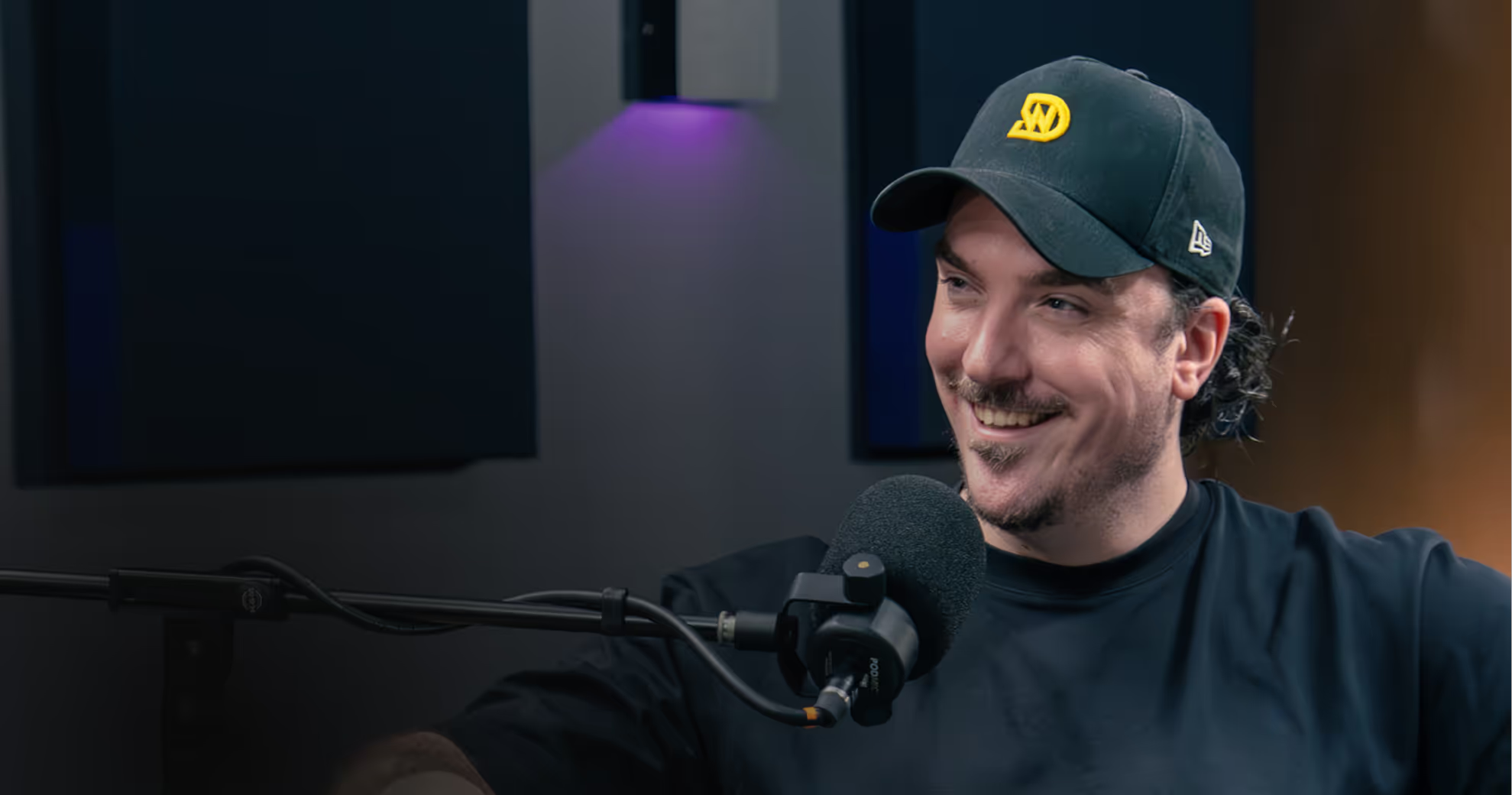
Work With Me
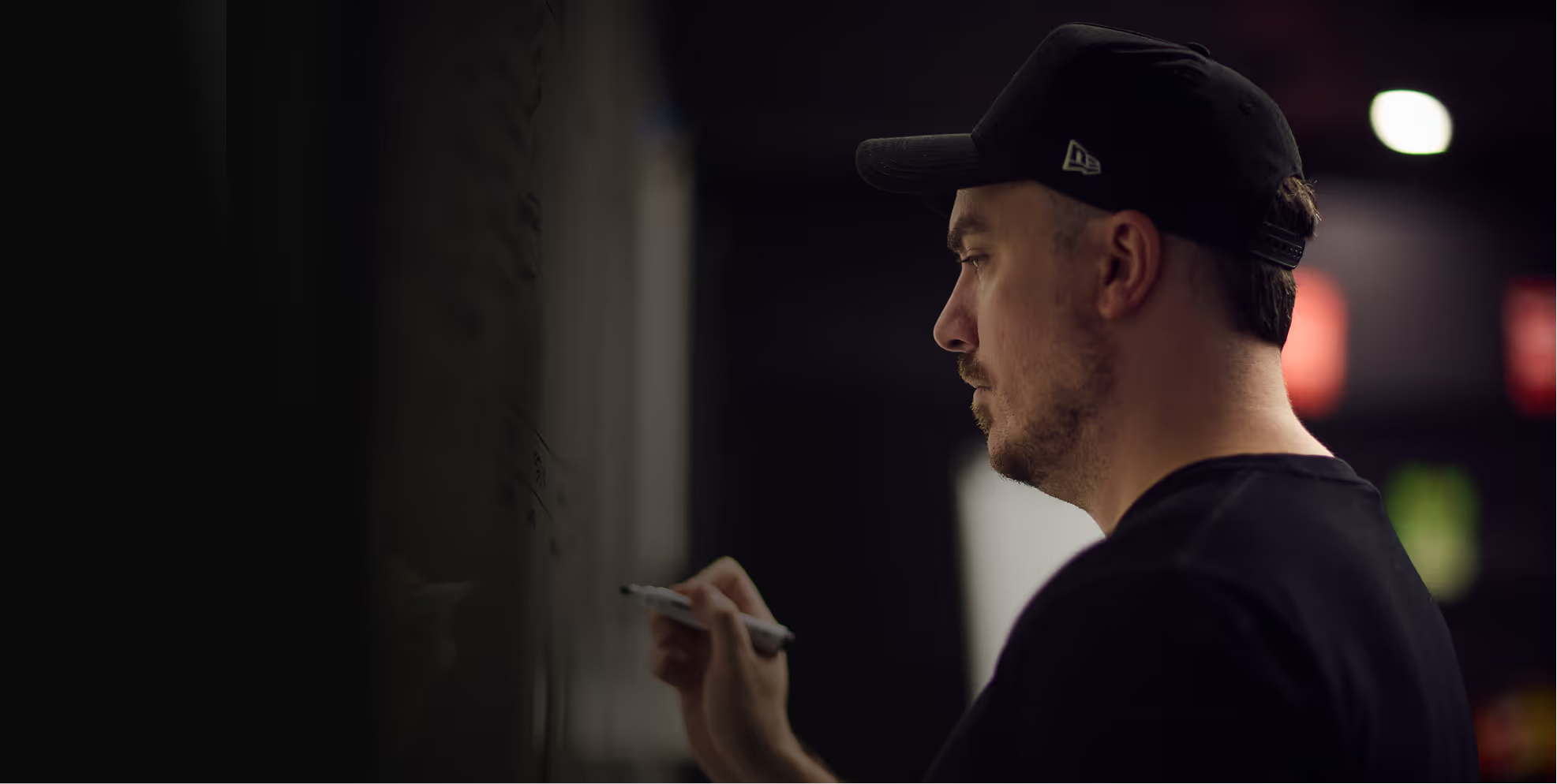
Enquire With Dain’s Team
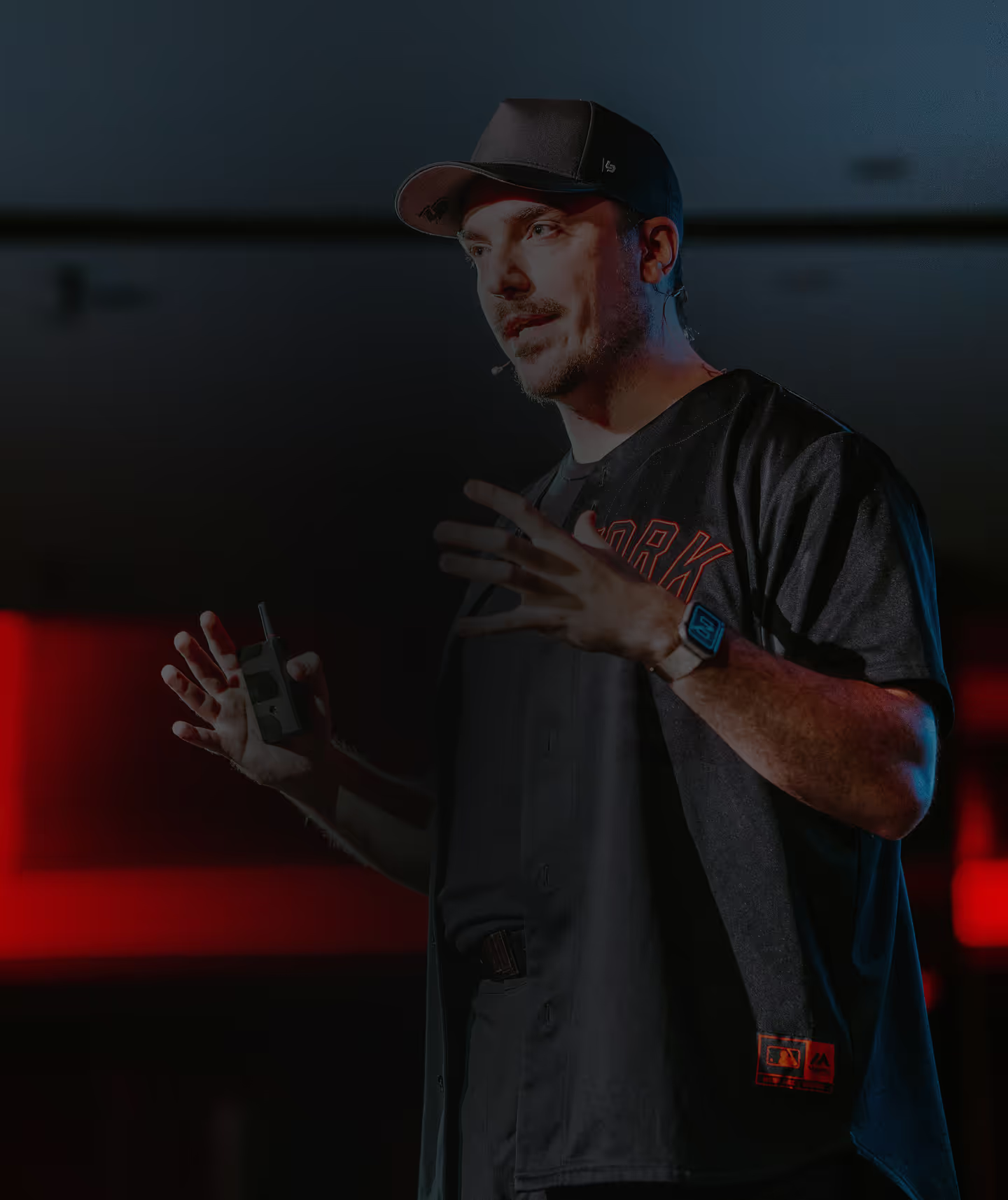
Enquire For Speaking

Let's Get You Branded
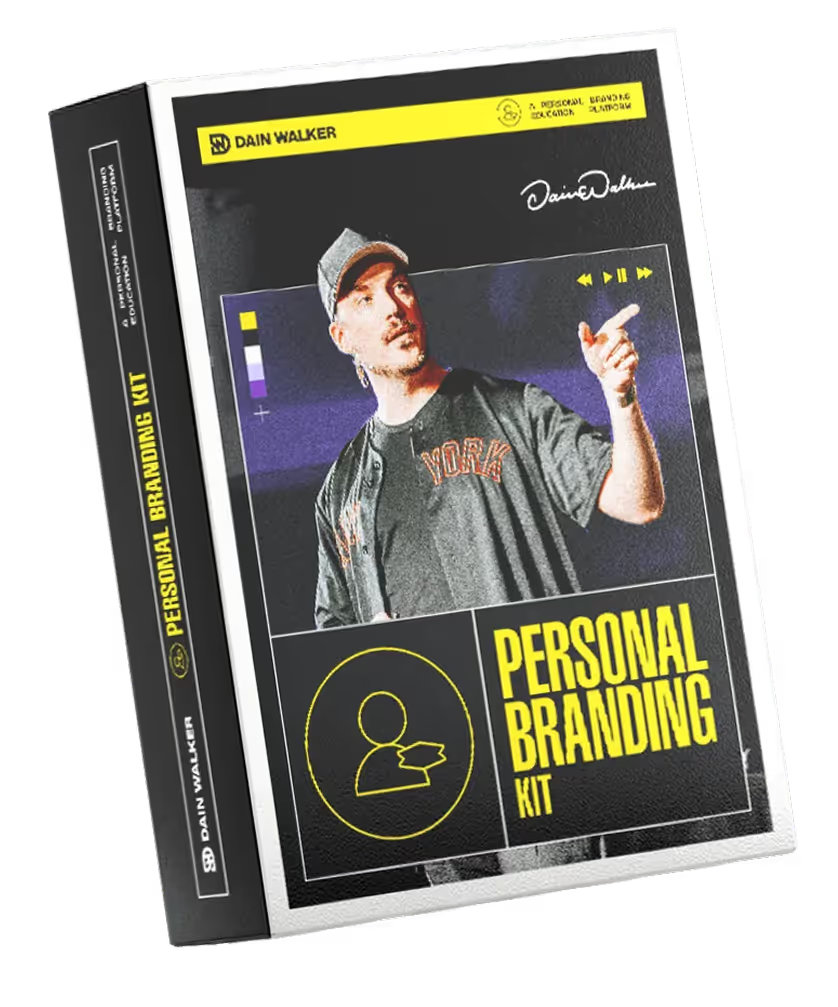
Apply to be a guest
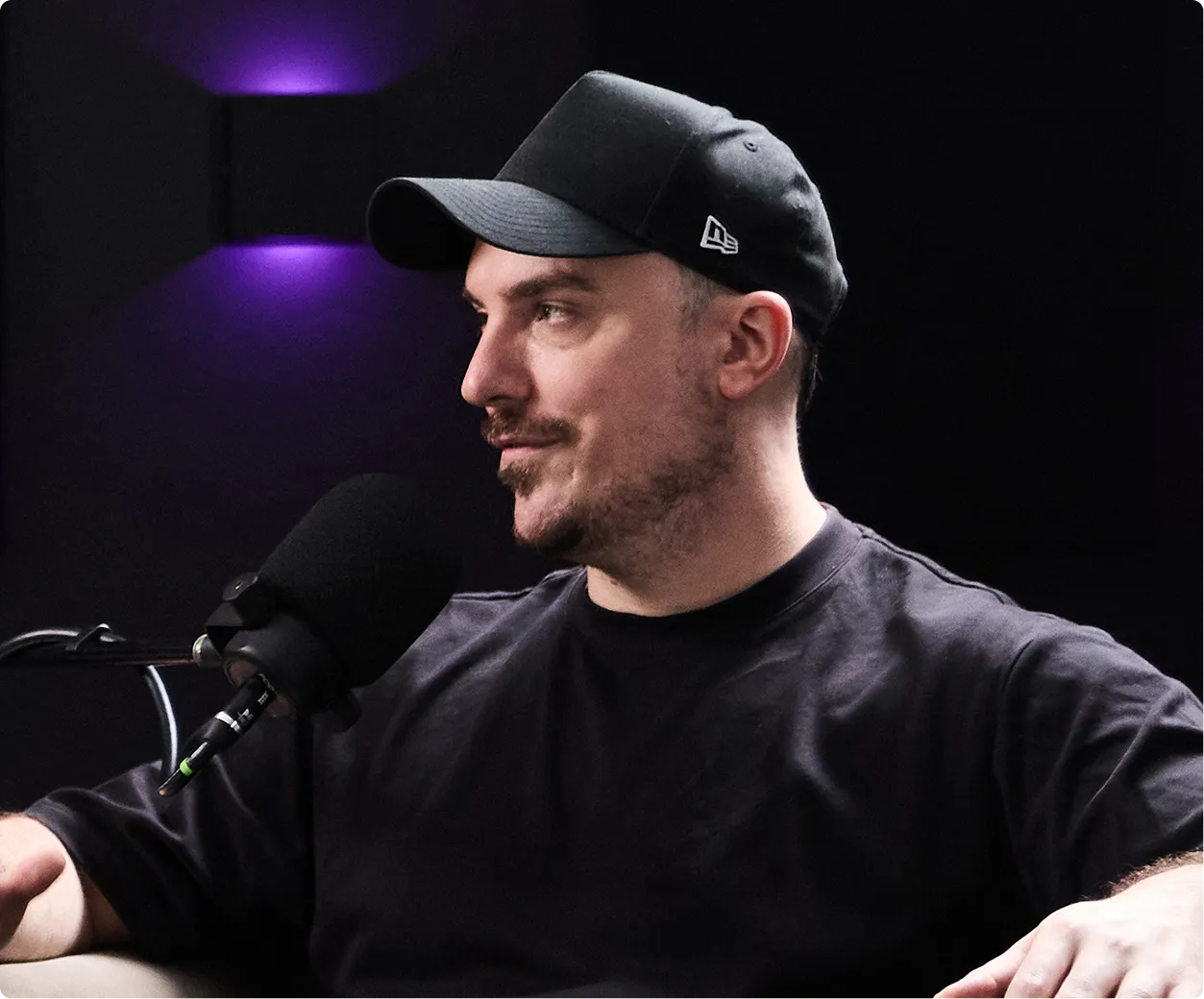
Dive into insights from industry leaders and experts.
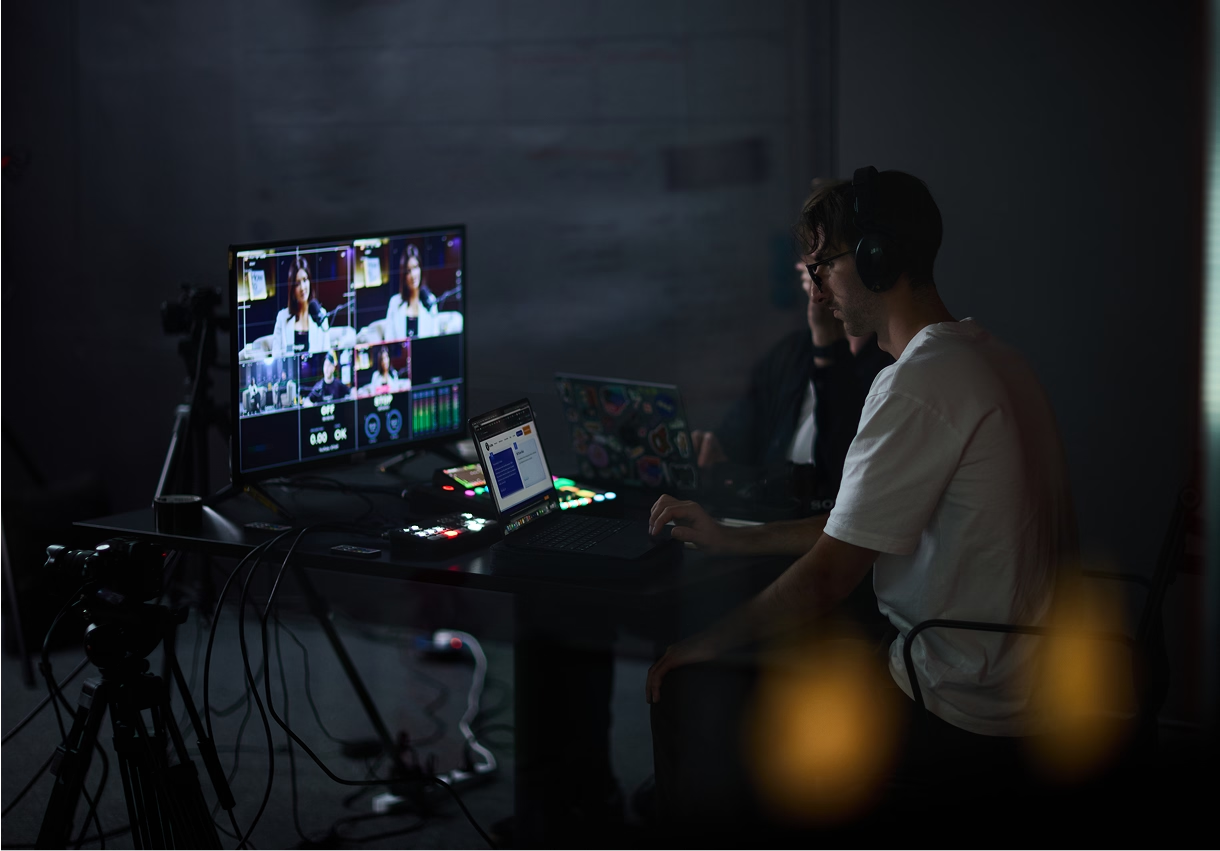
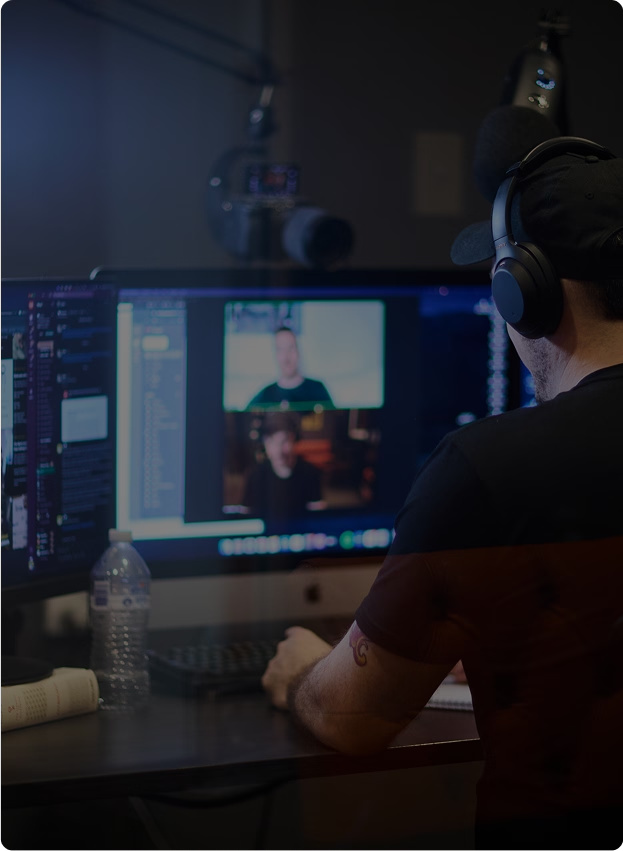
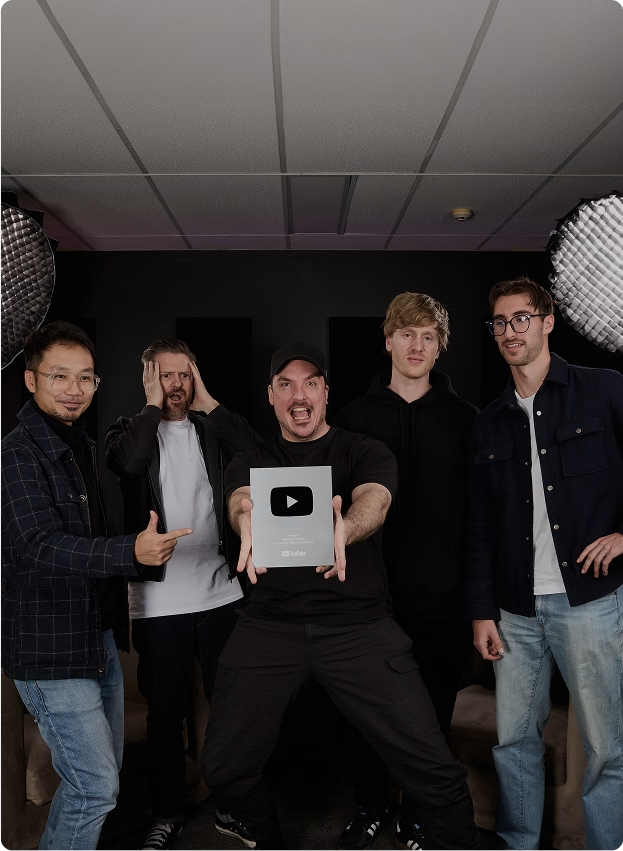
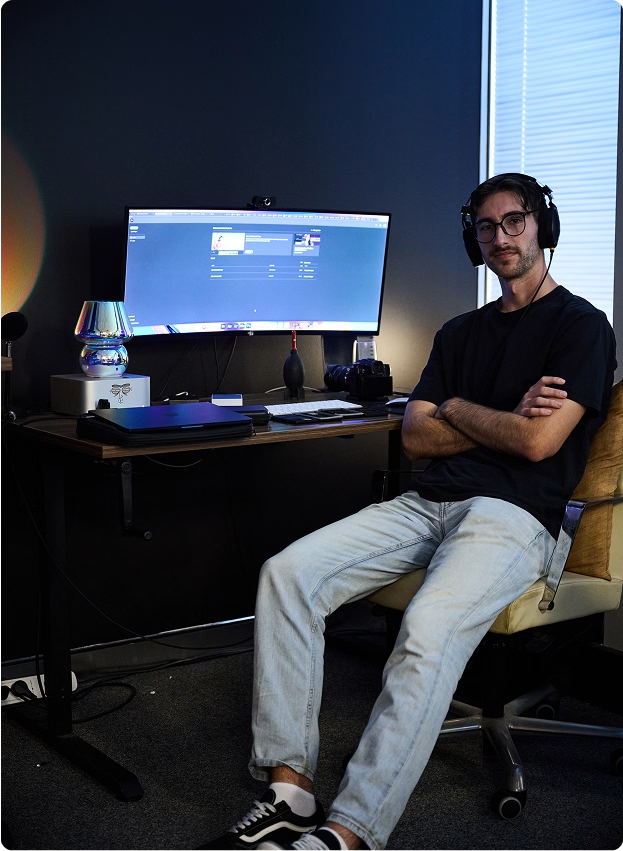
Stream now
Dive into expert advice and industry trends.
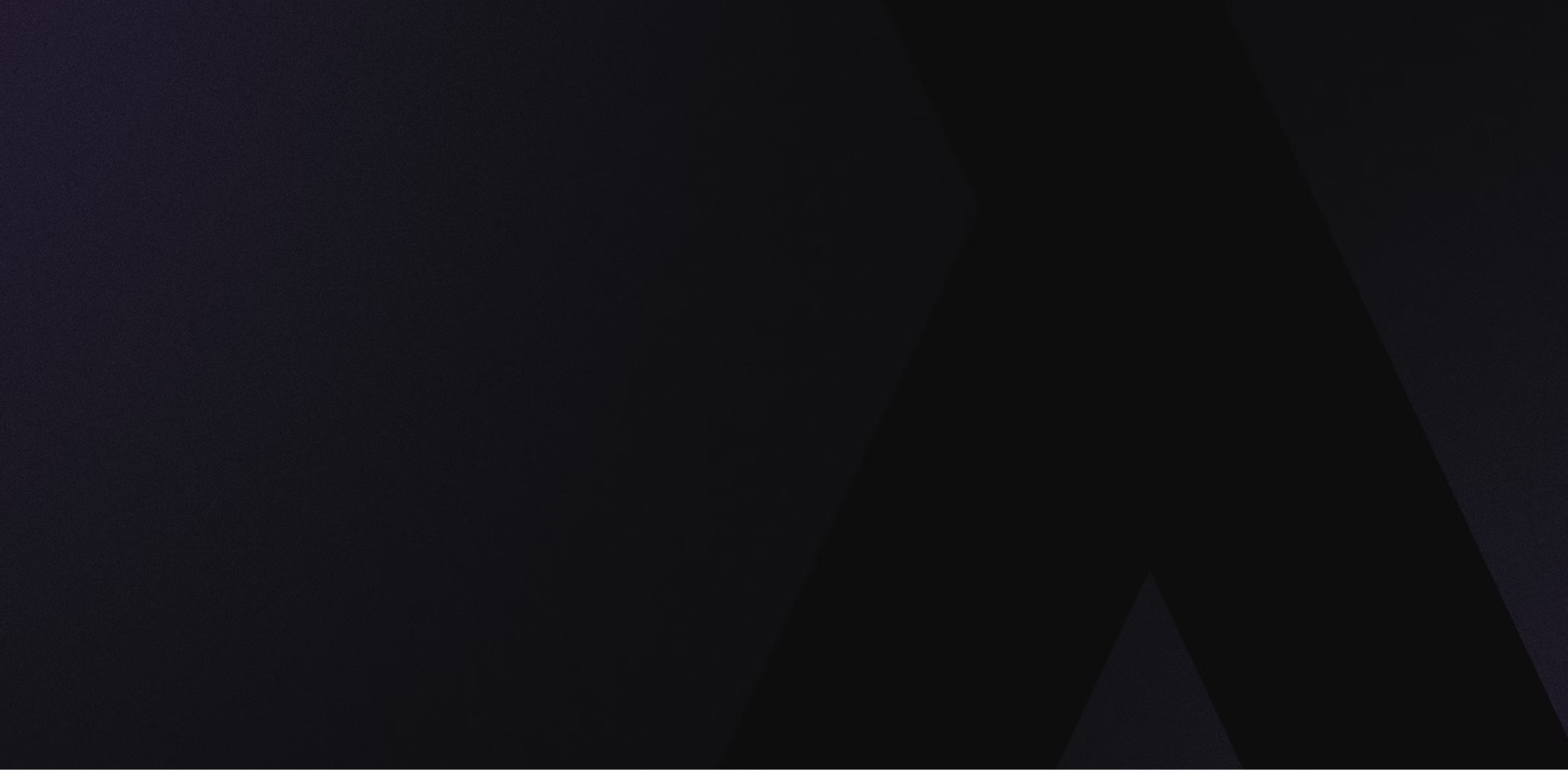

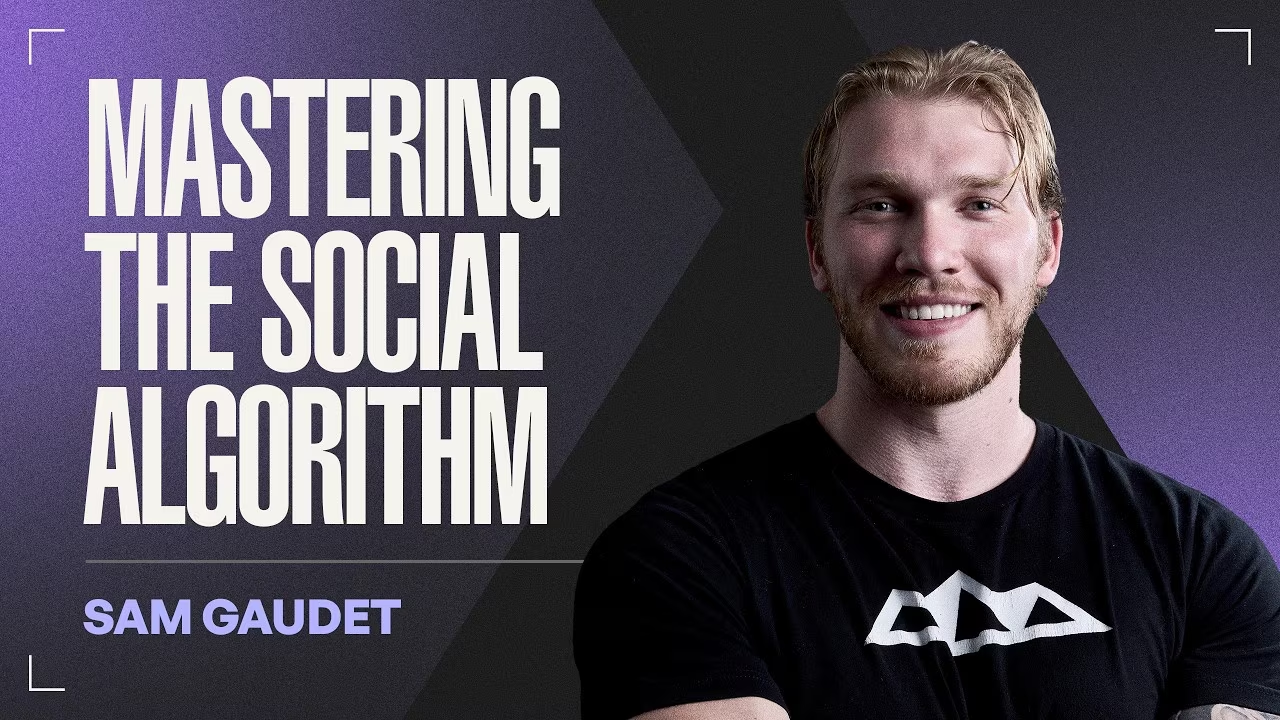
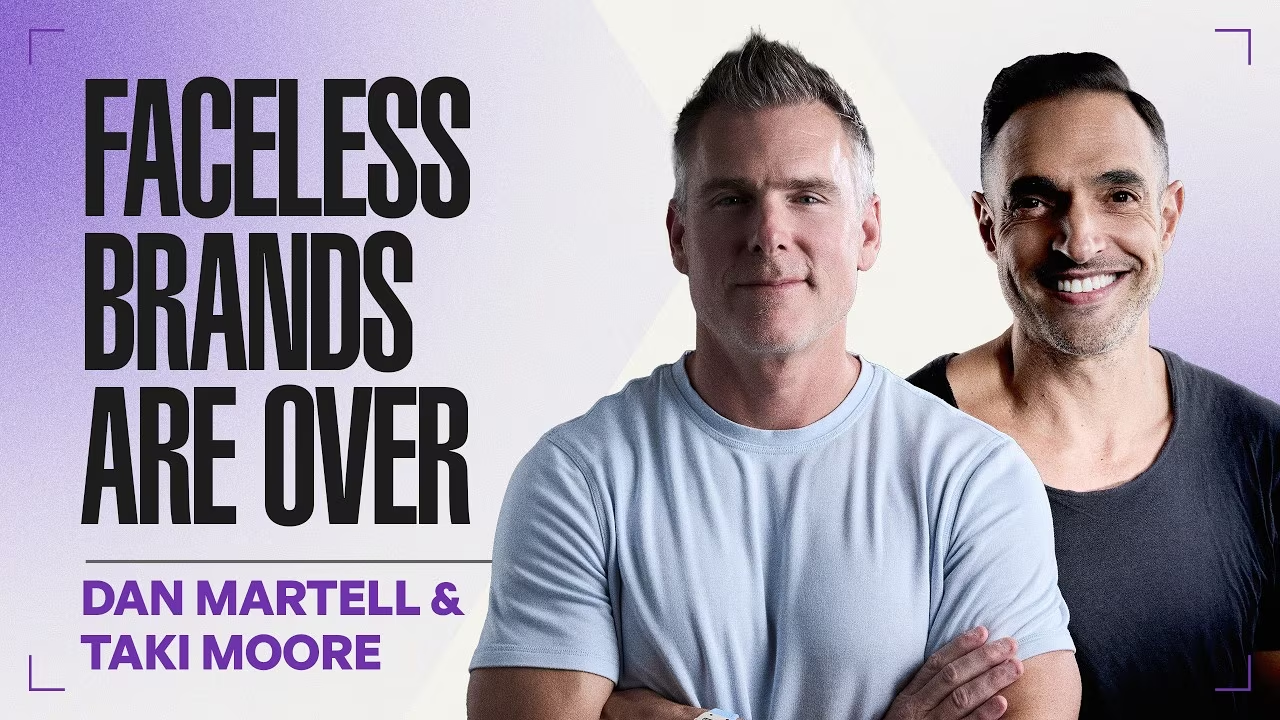
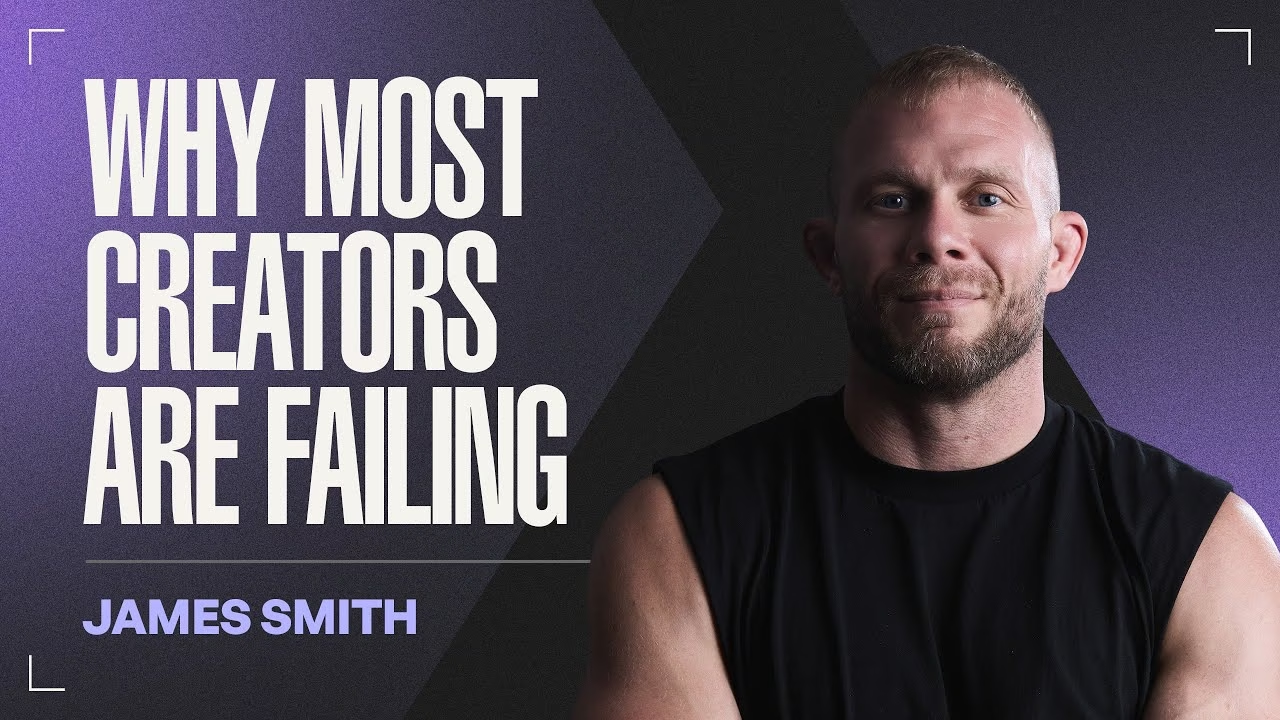
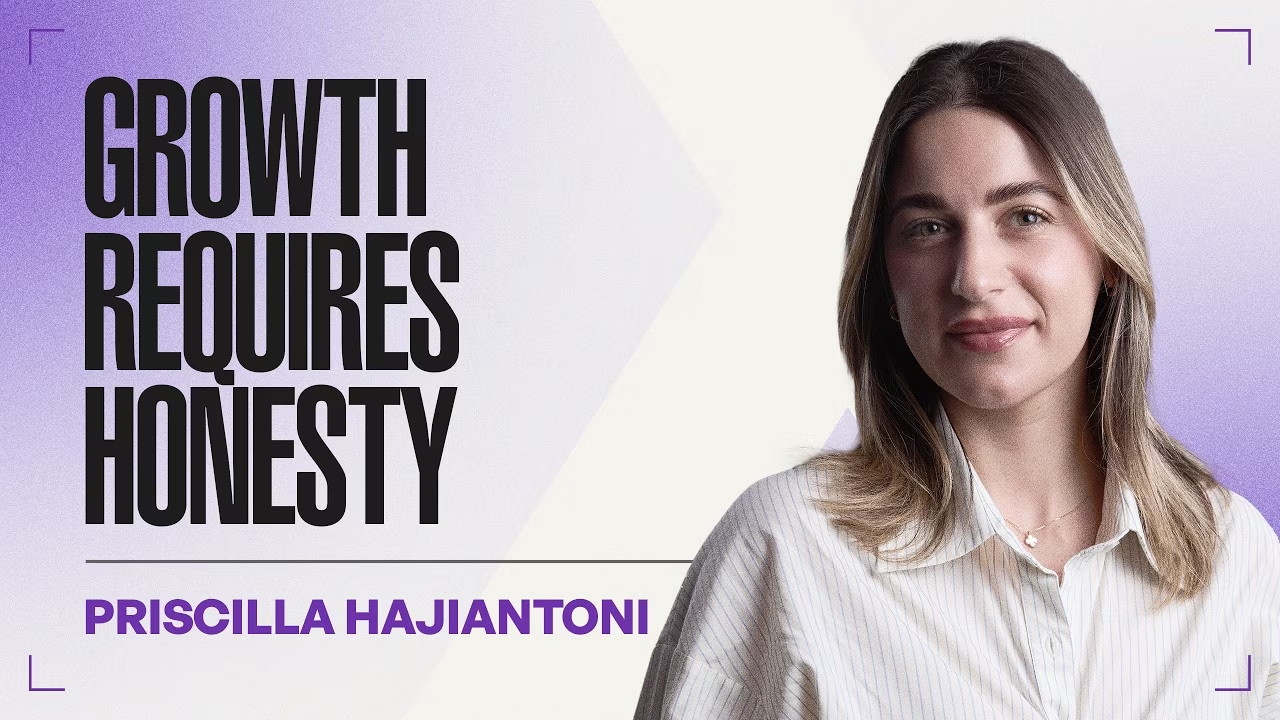
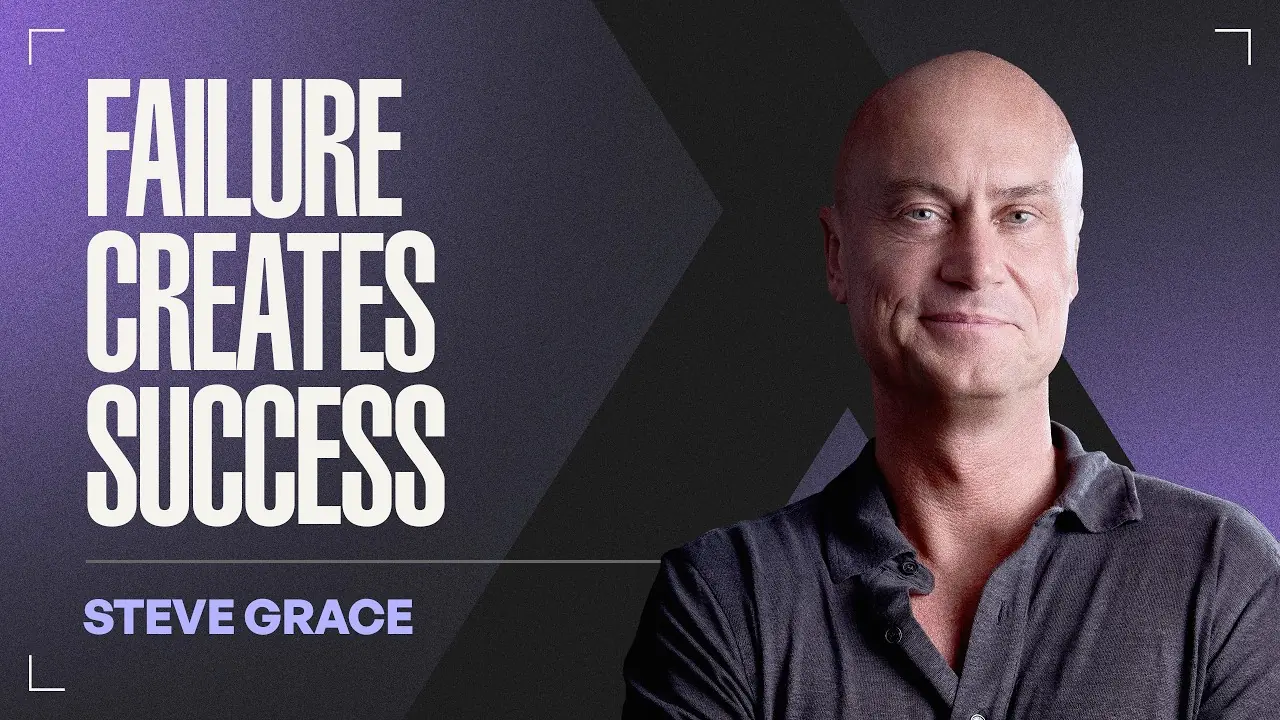
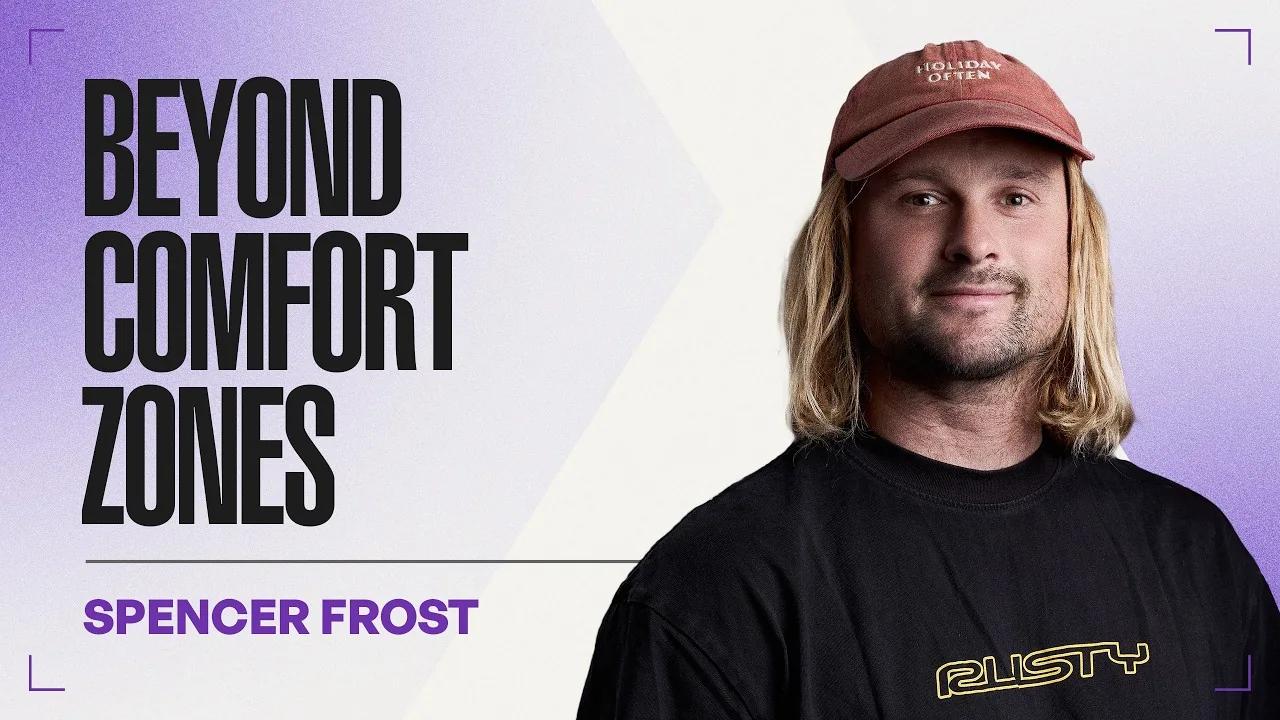
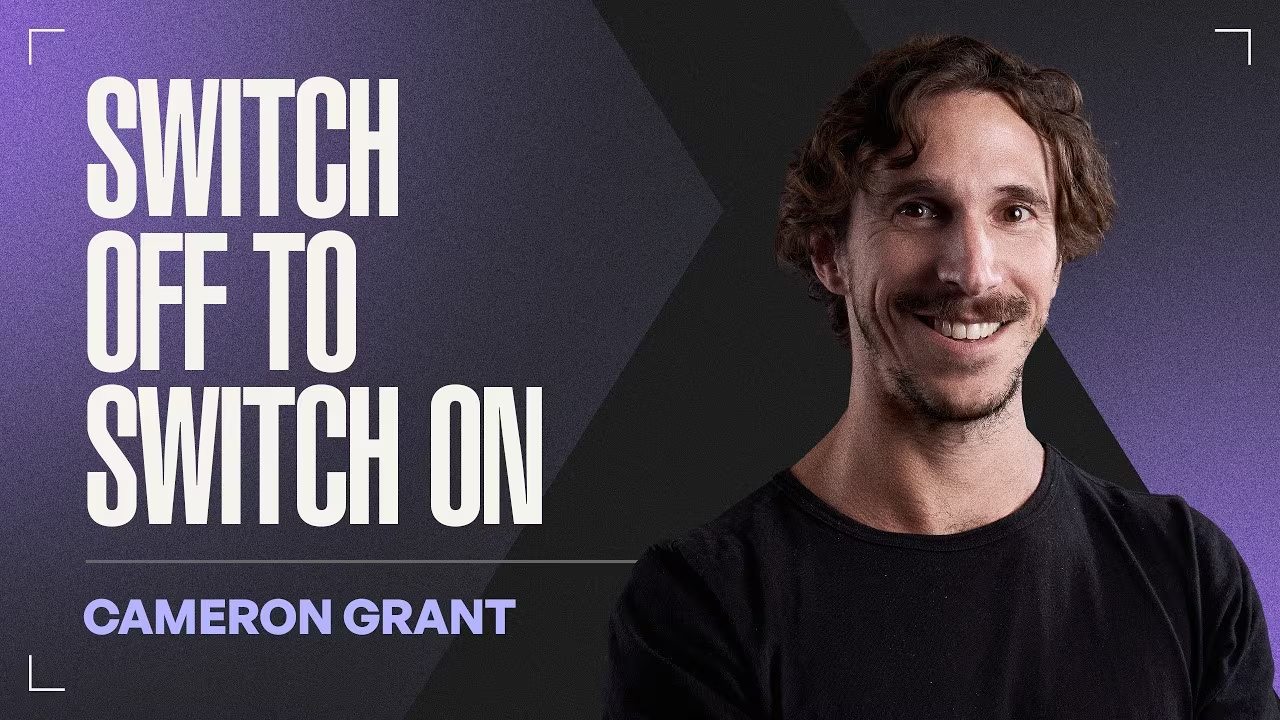
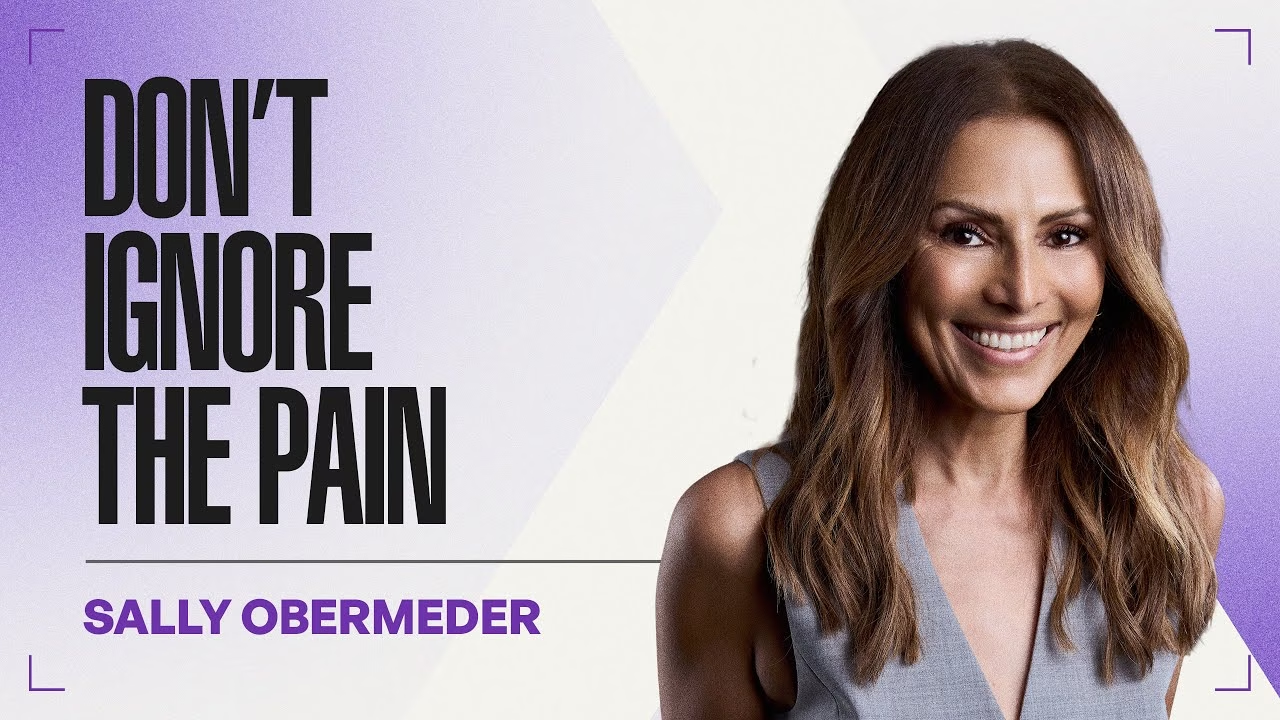
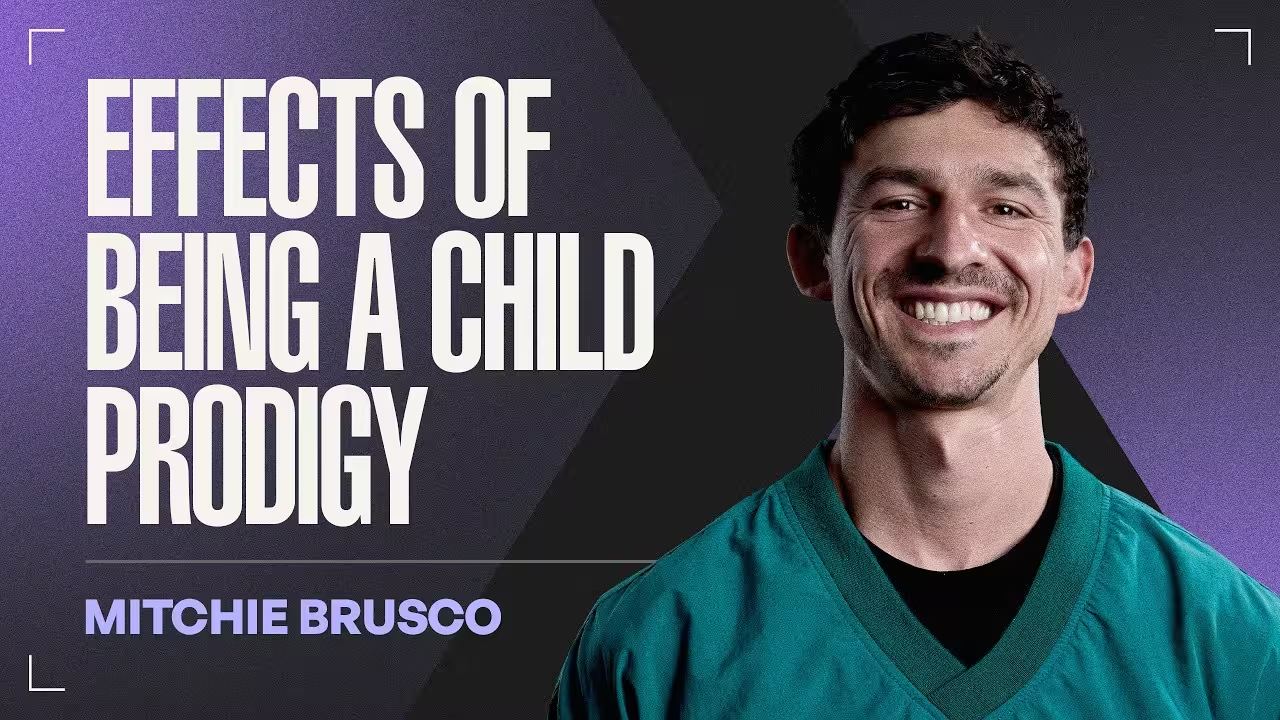
.avif)
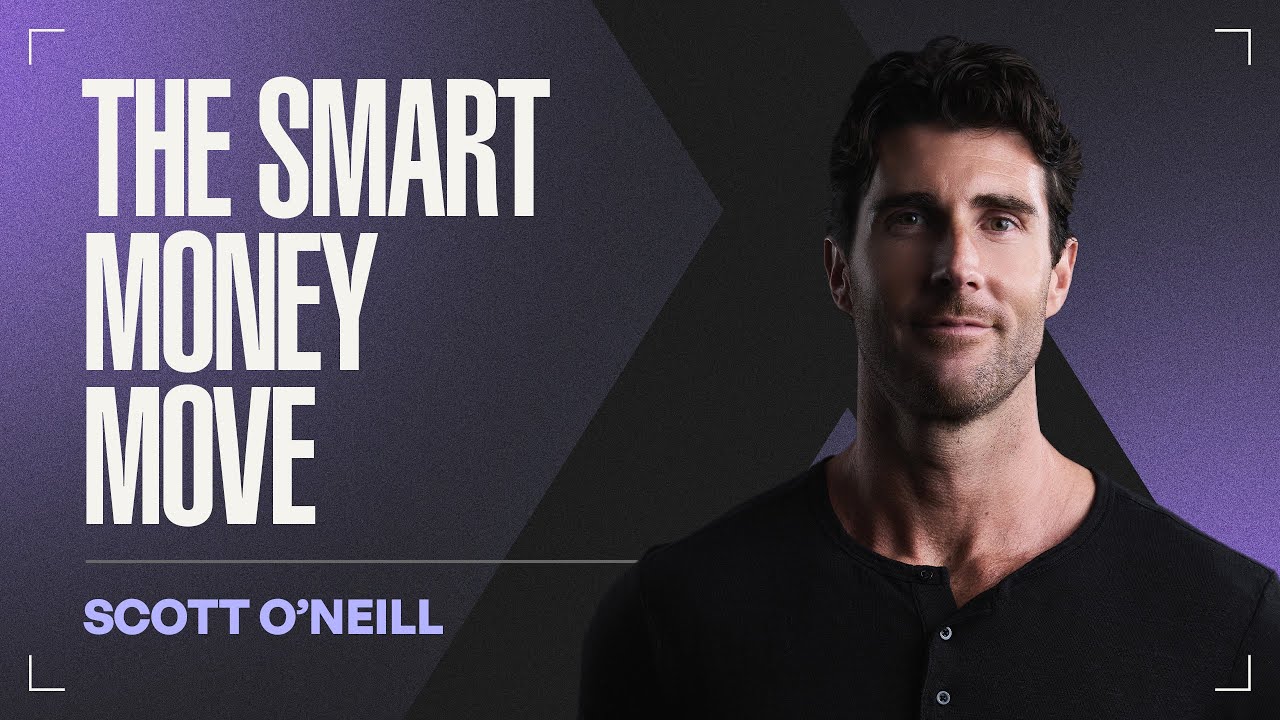
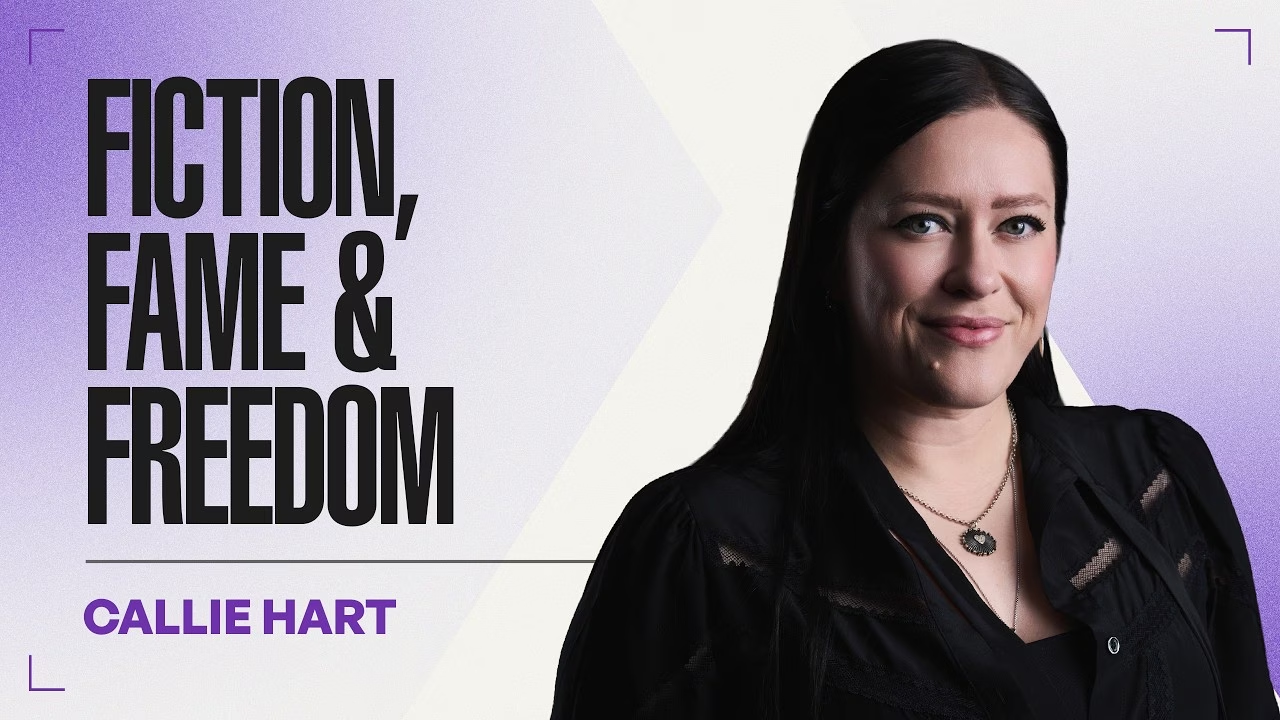

.avif)
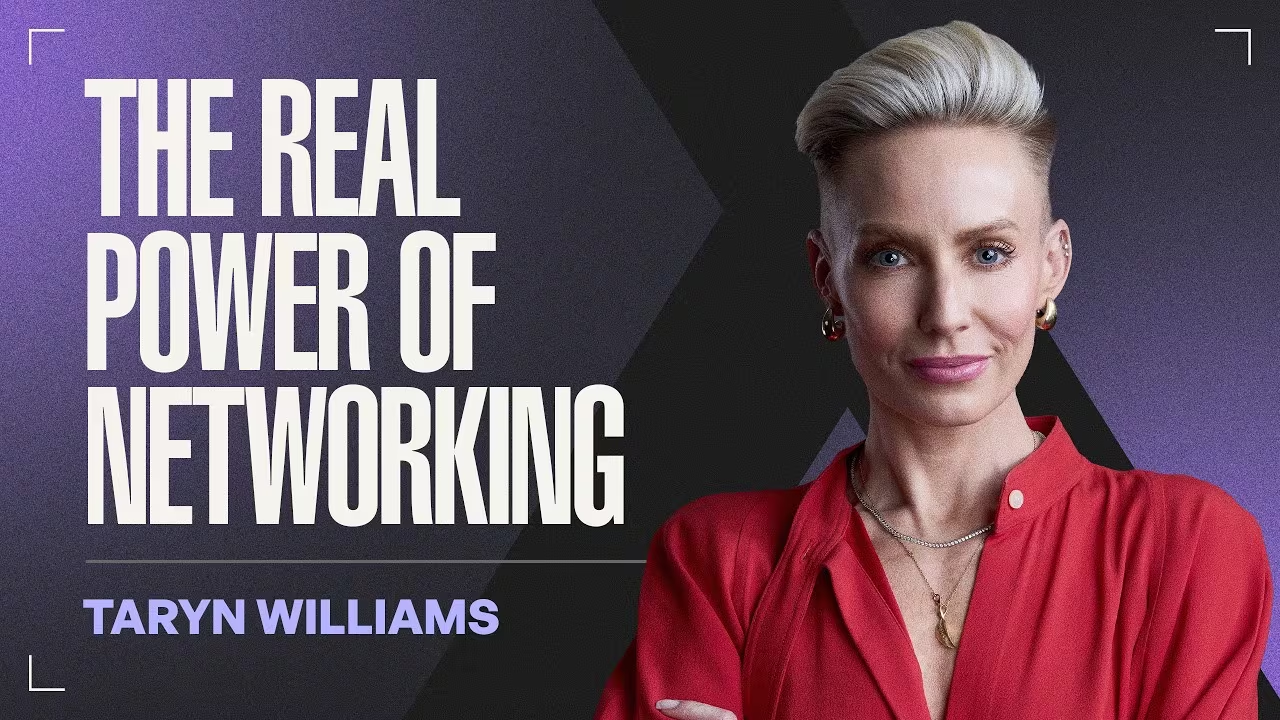

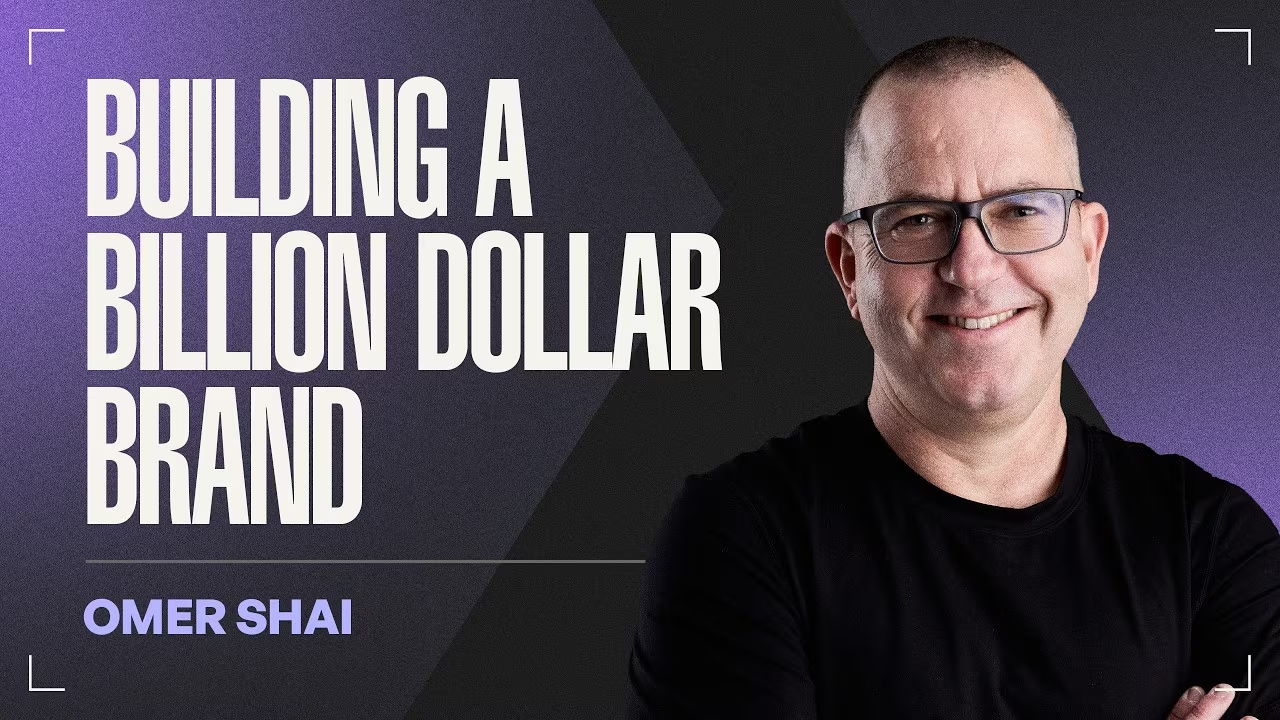
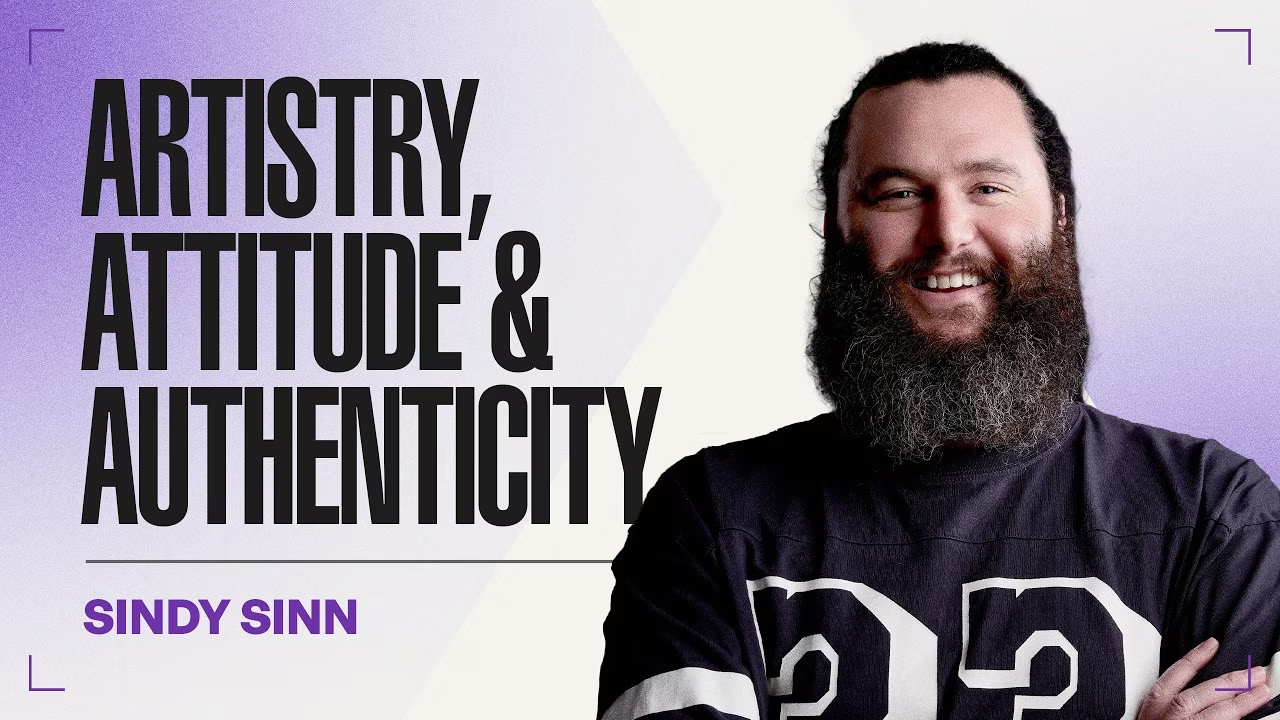
%20(1).avif)
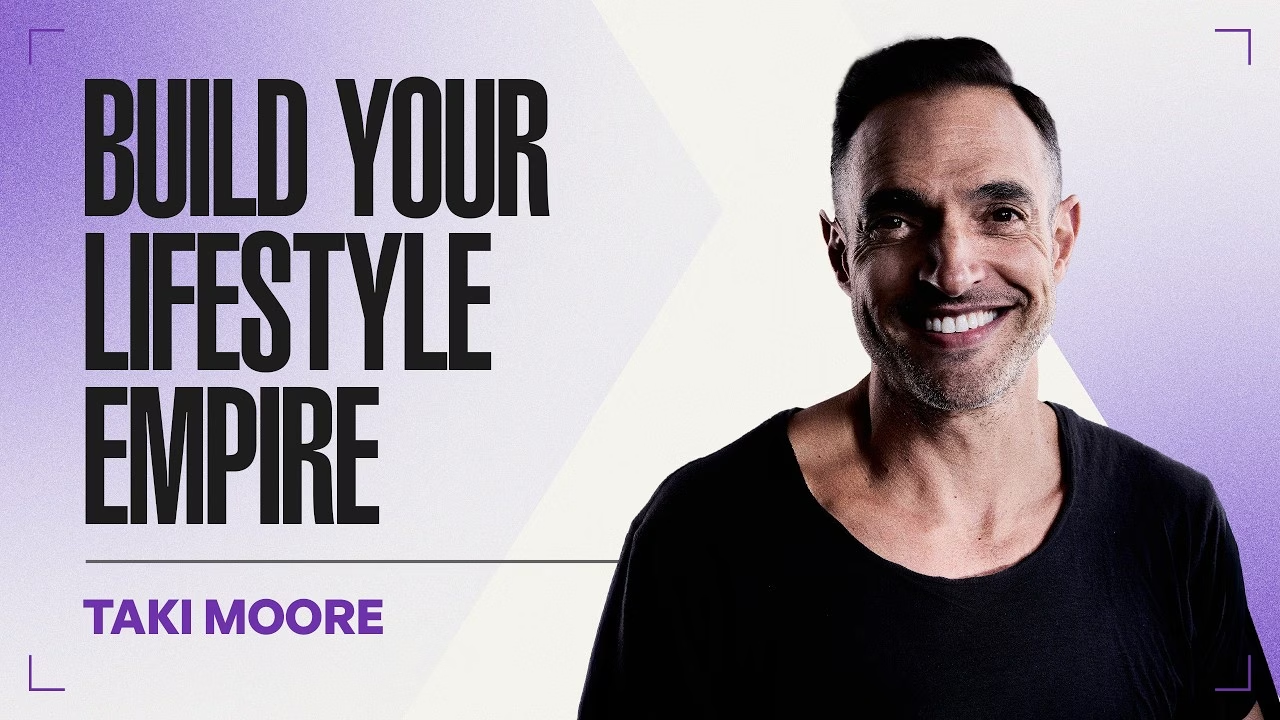
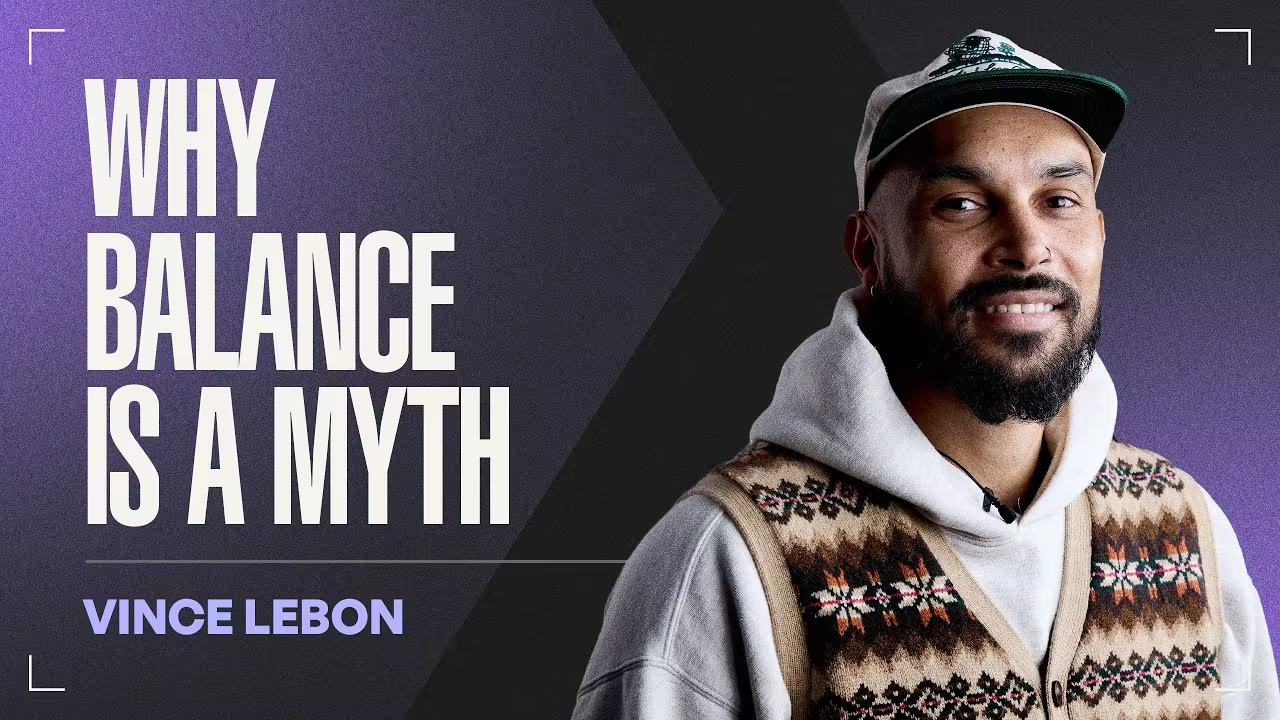
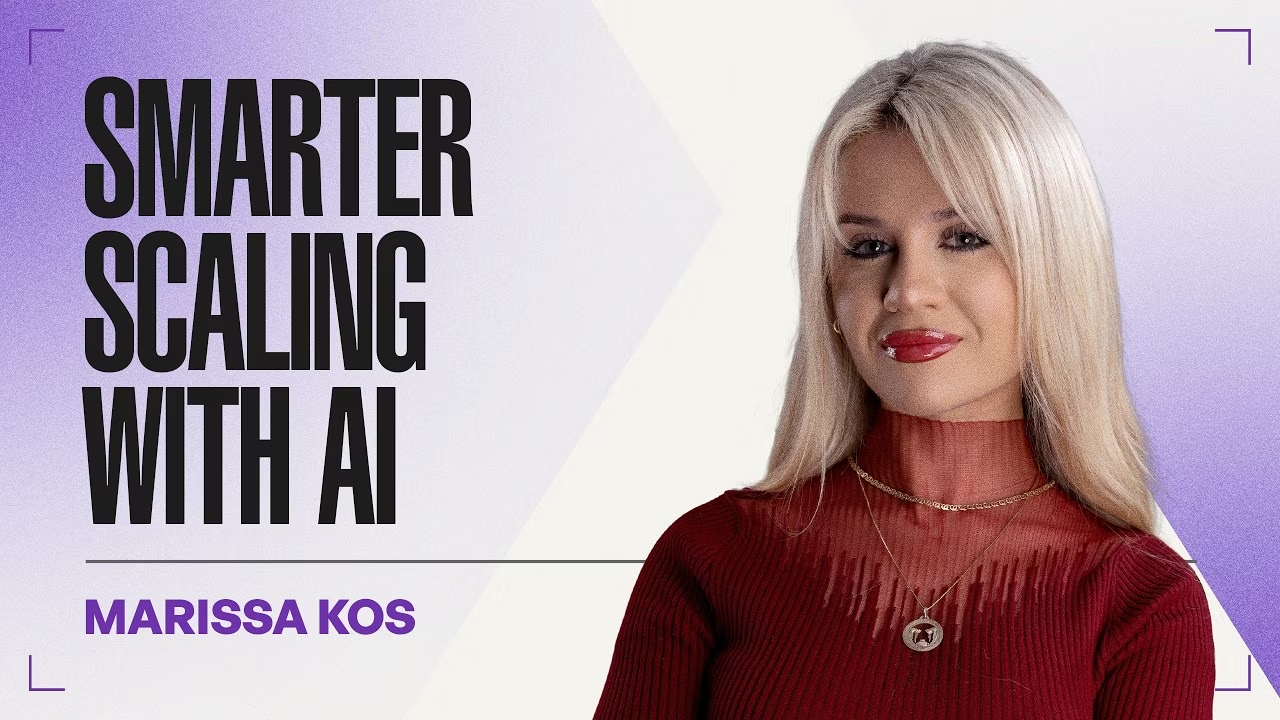
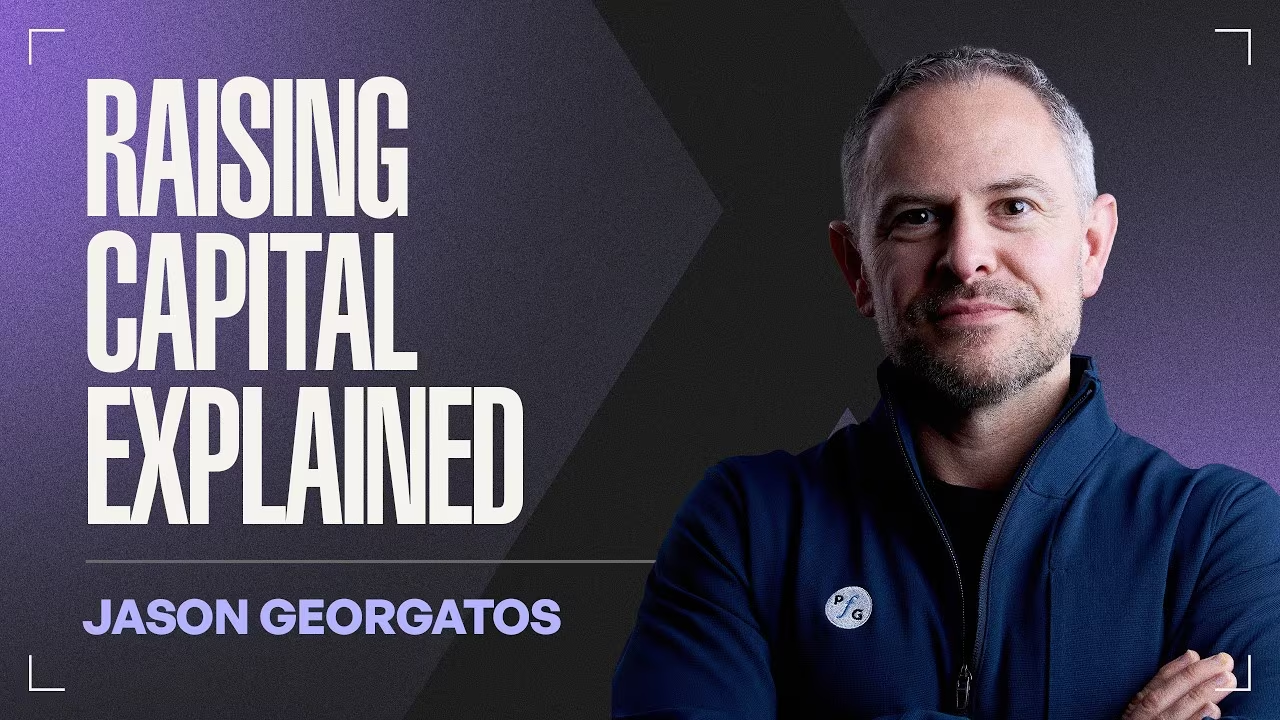
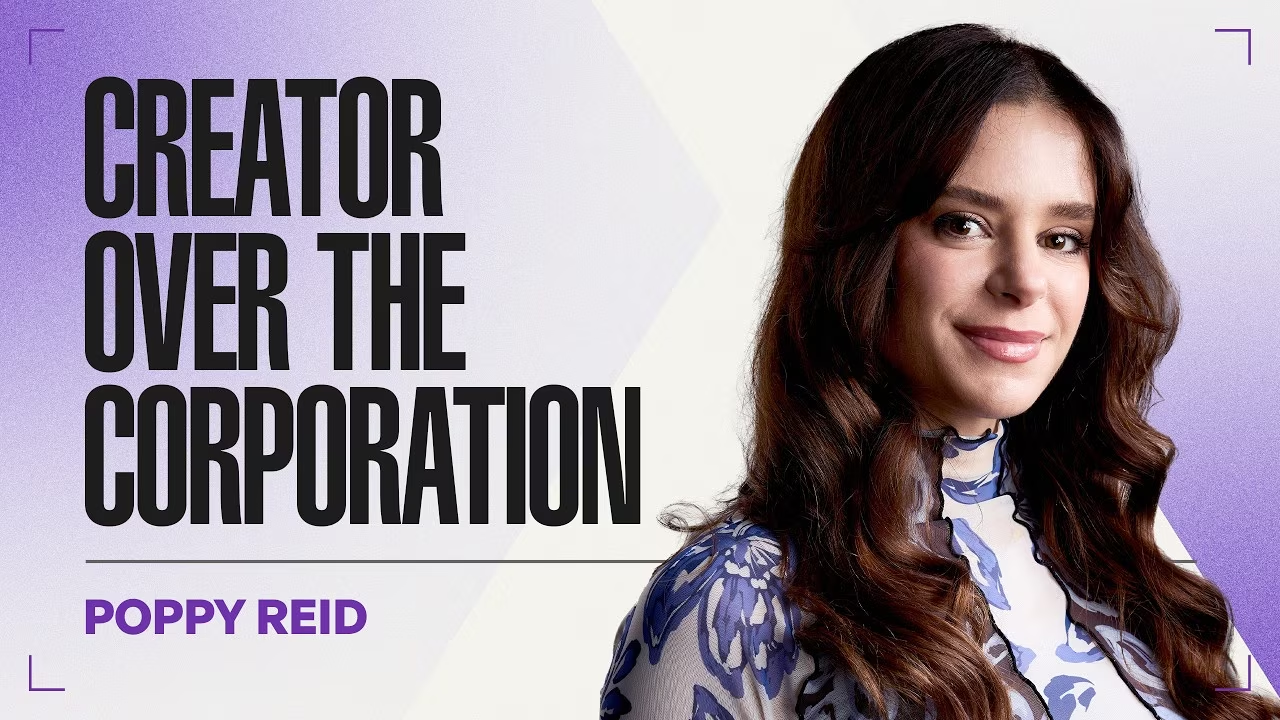
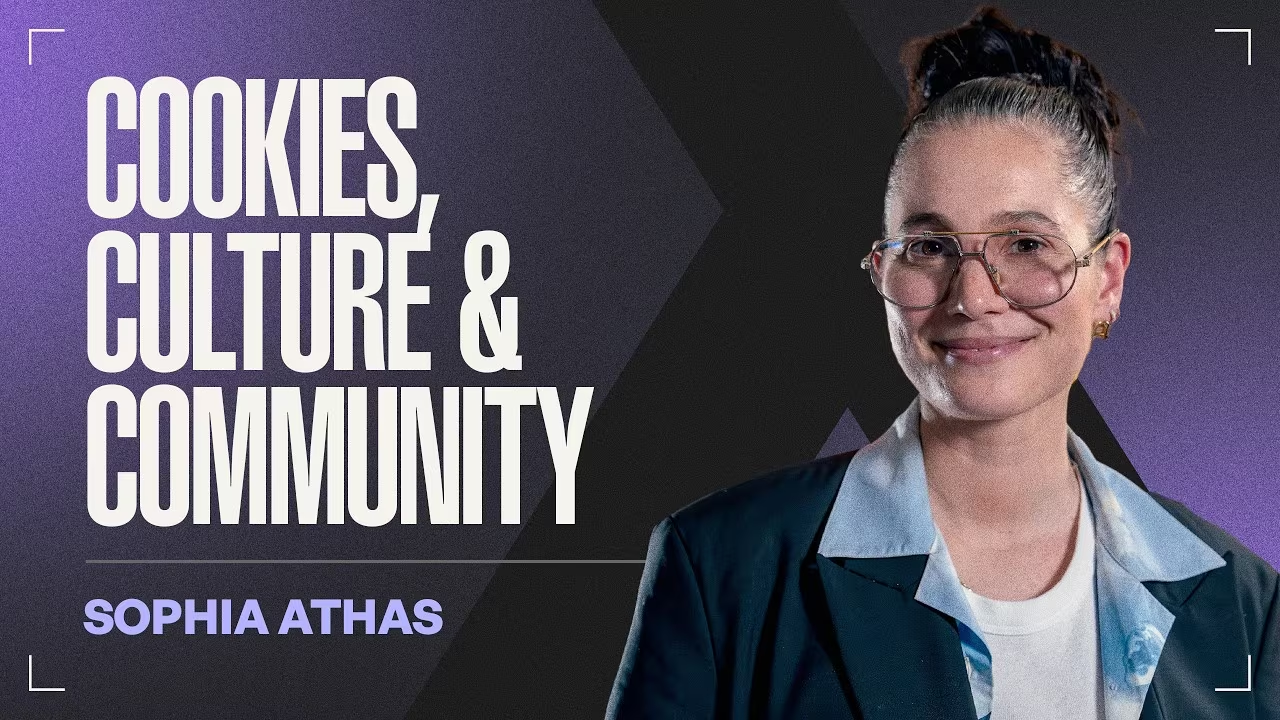

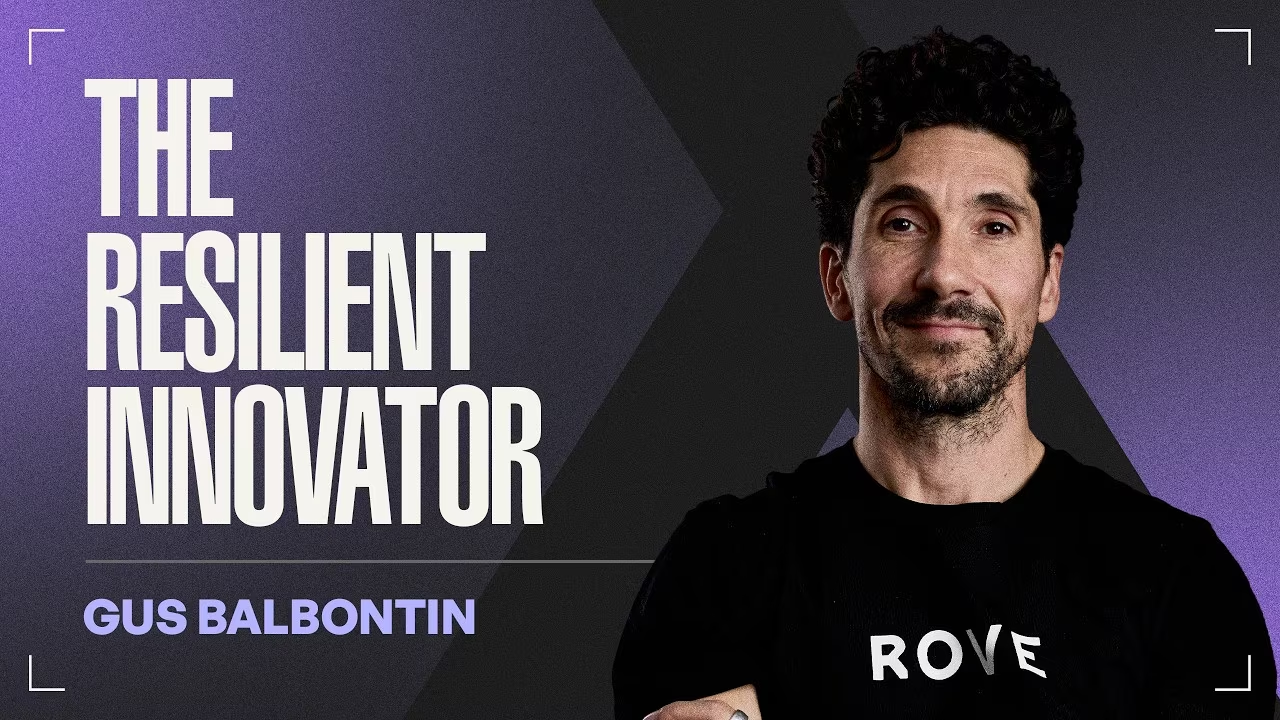
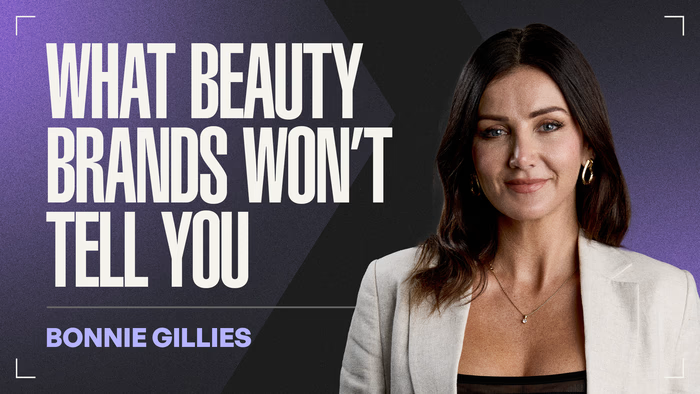


.avif)

